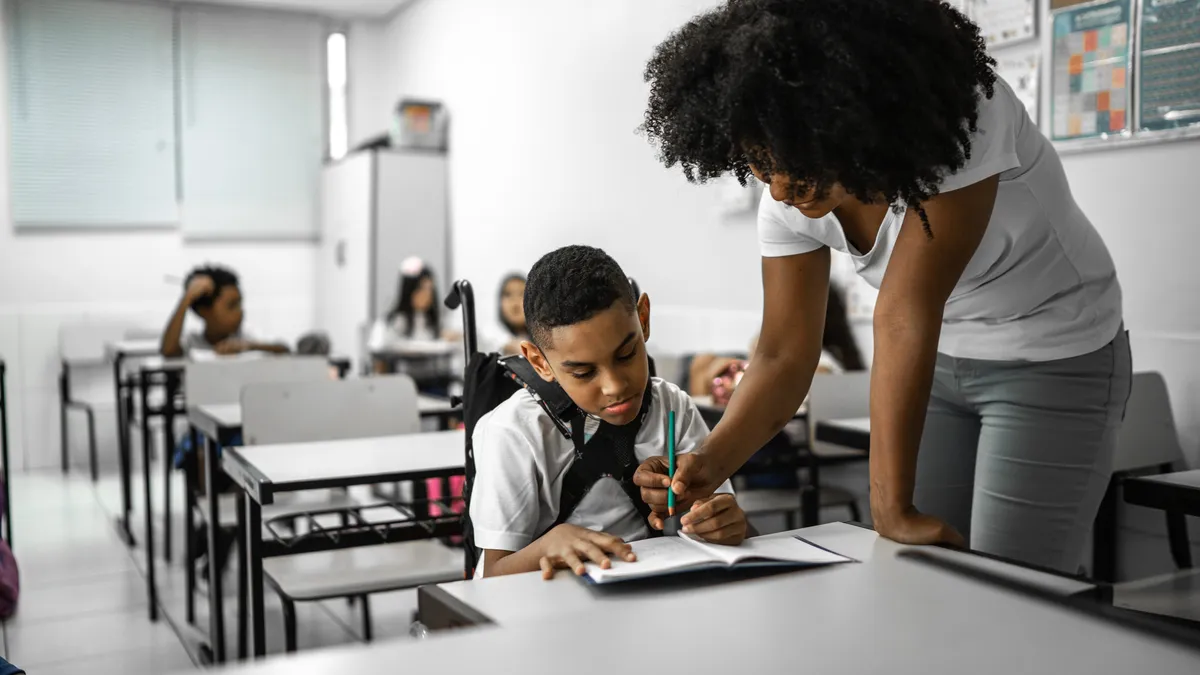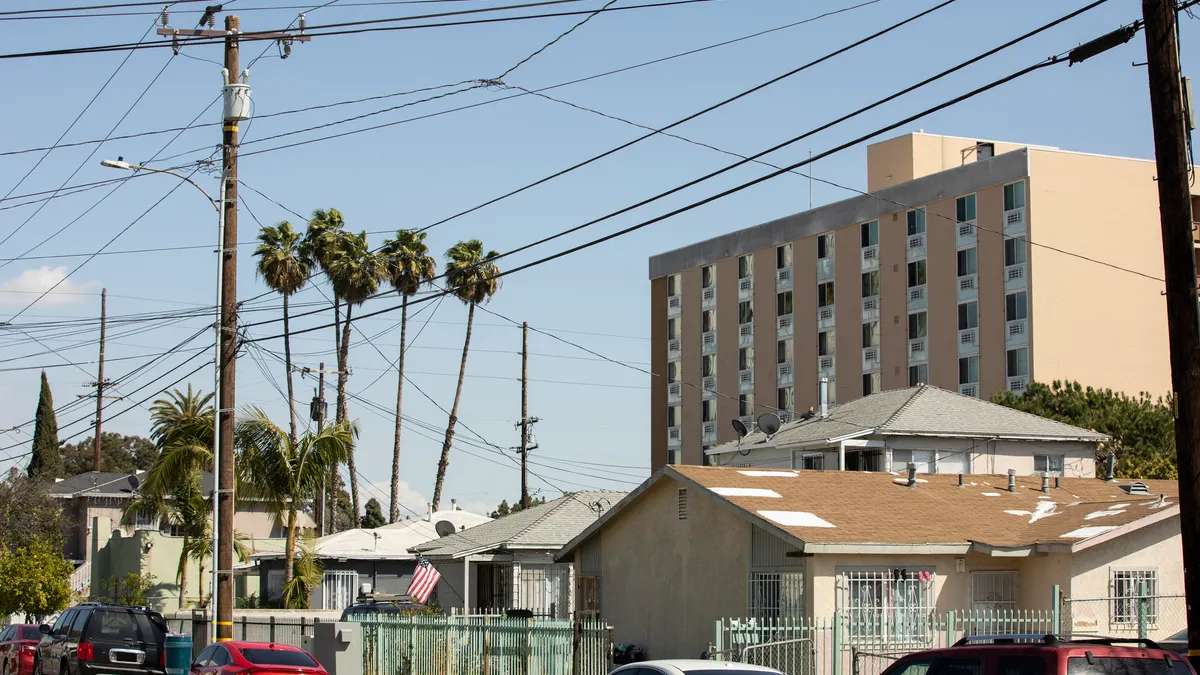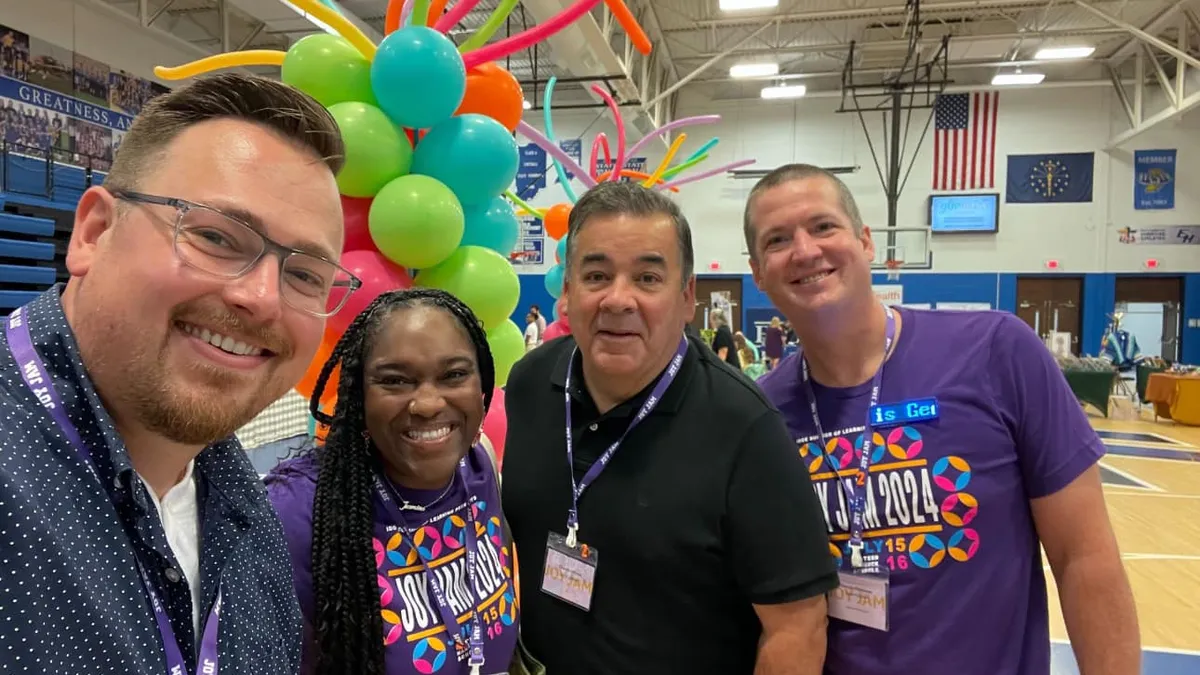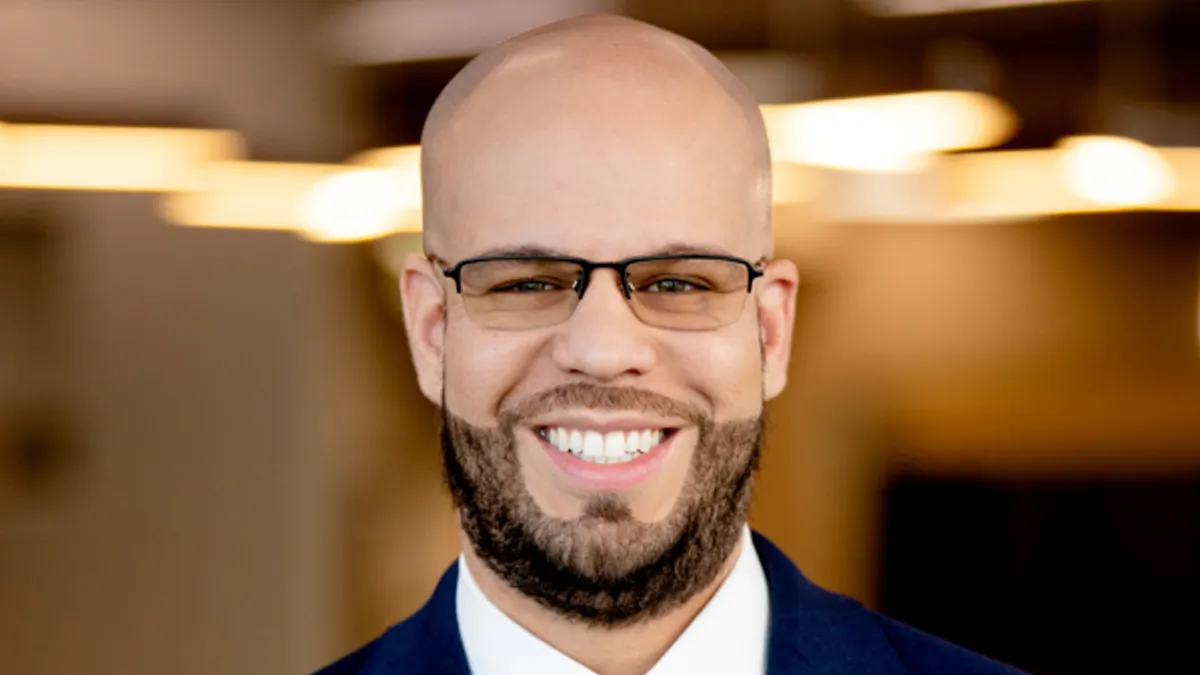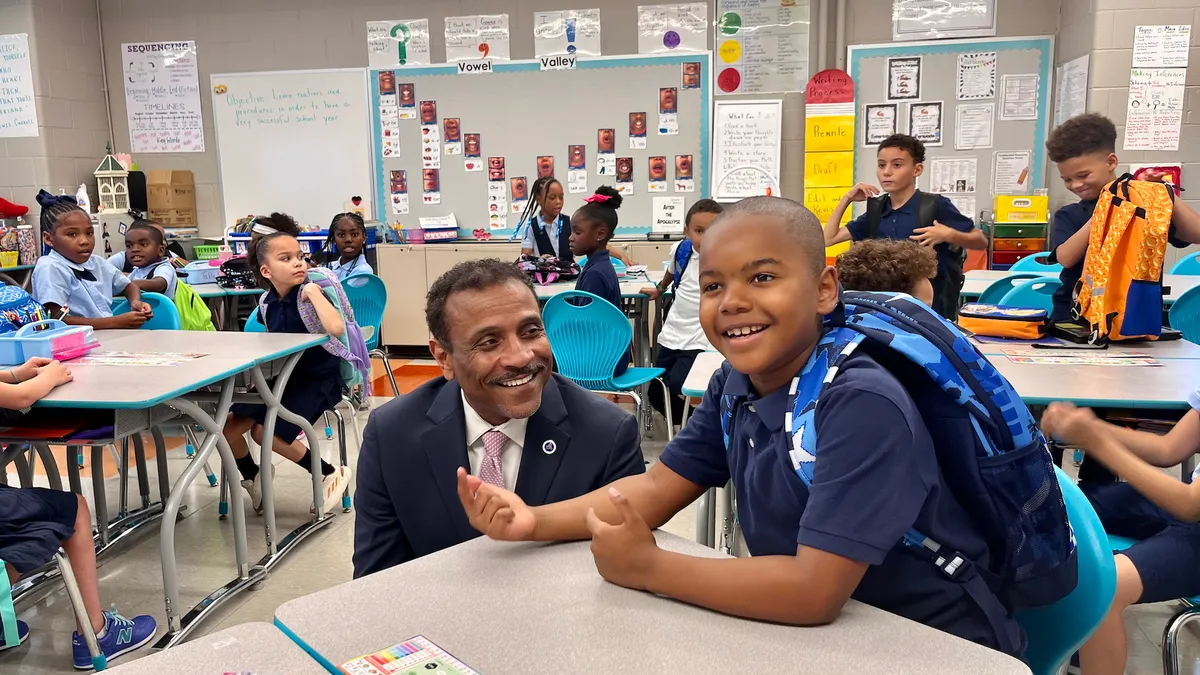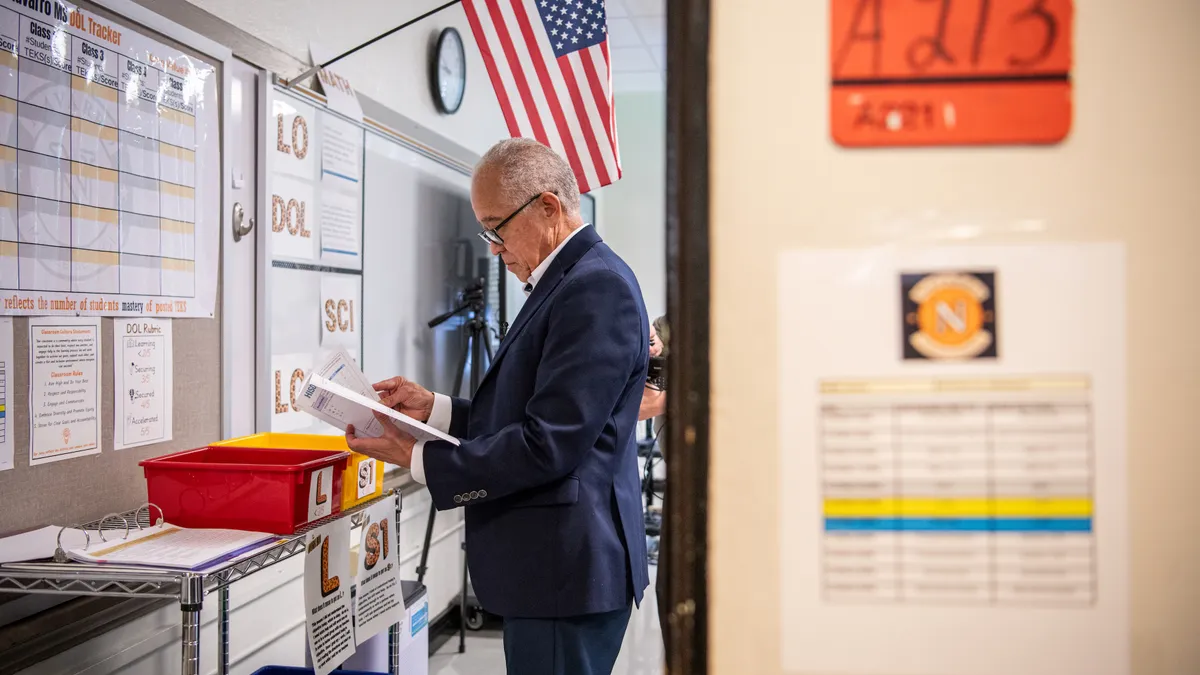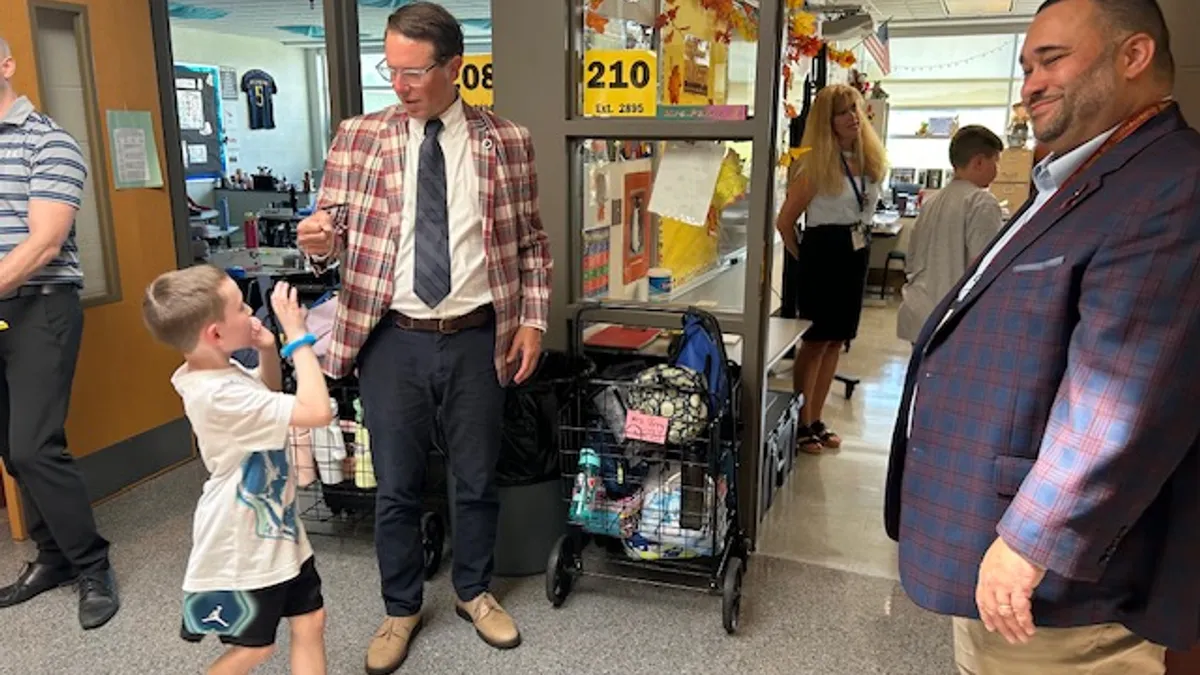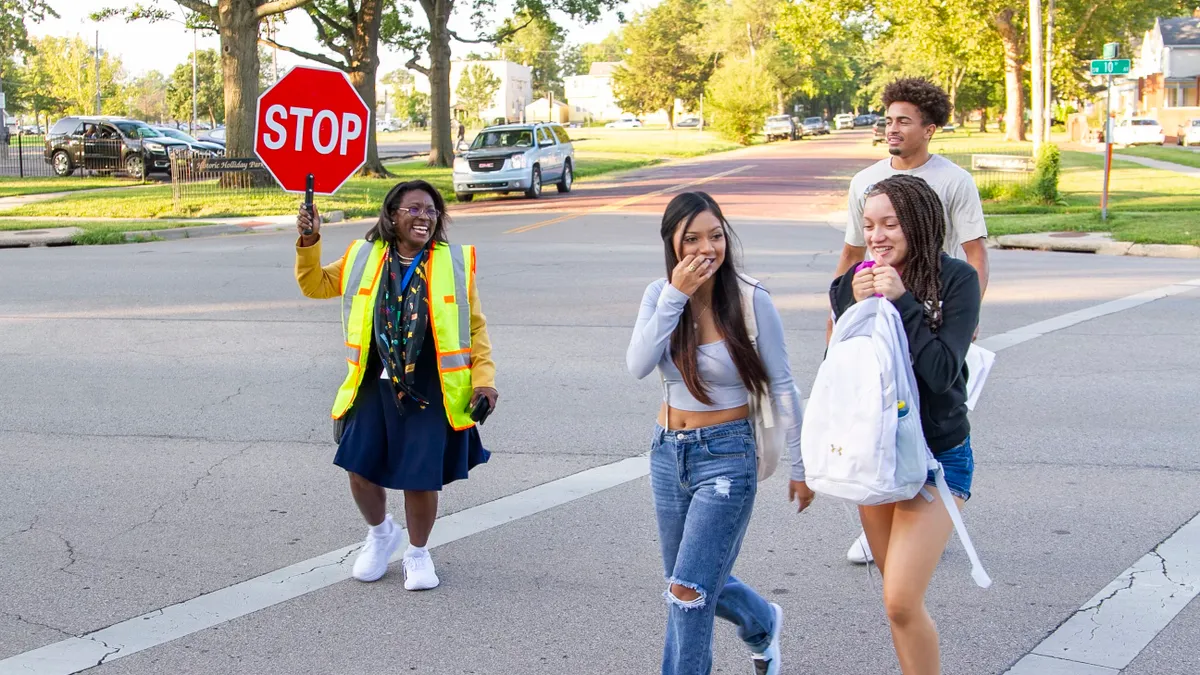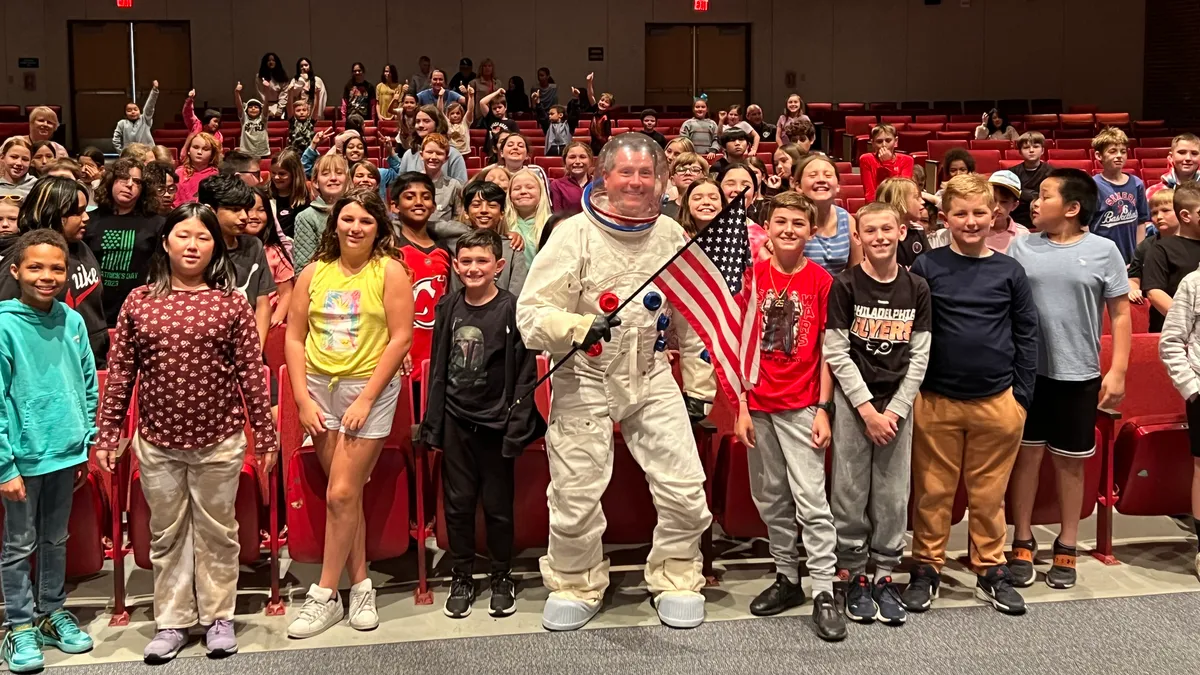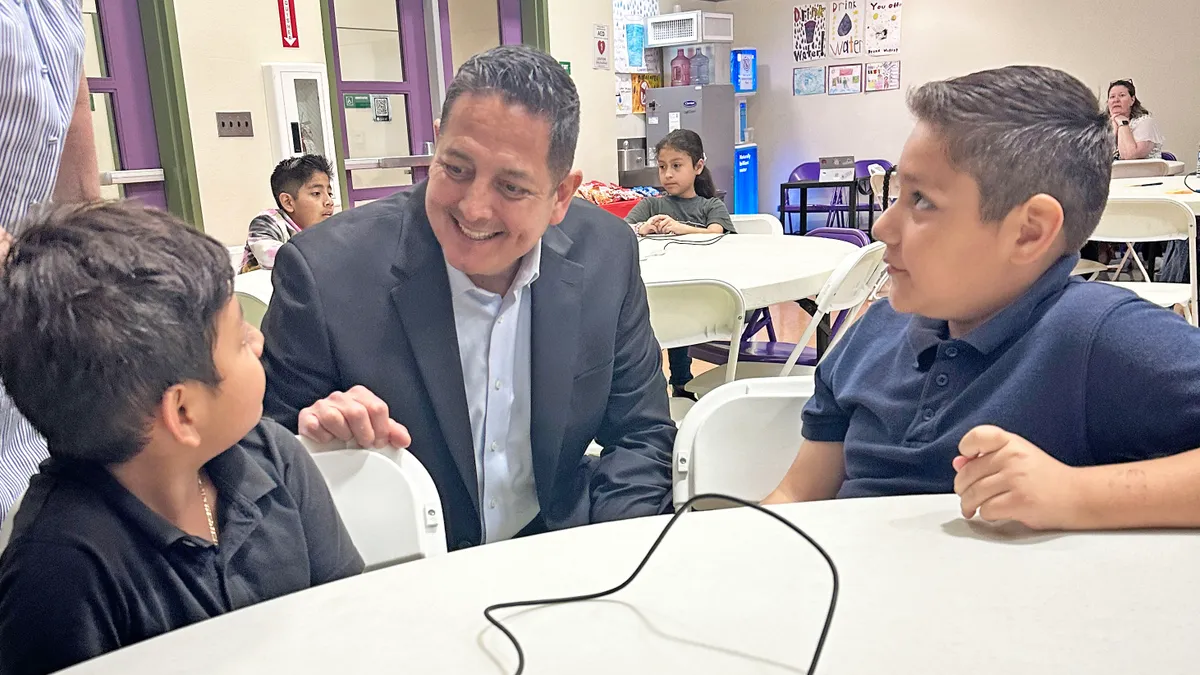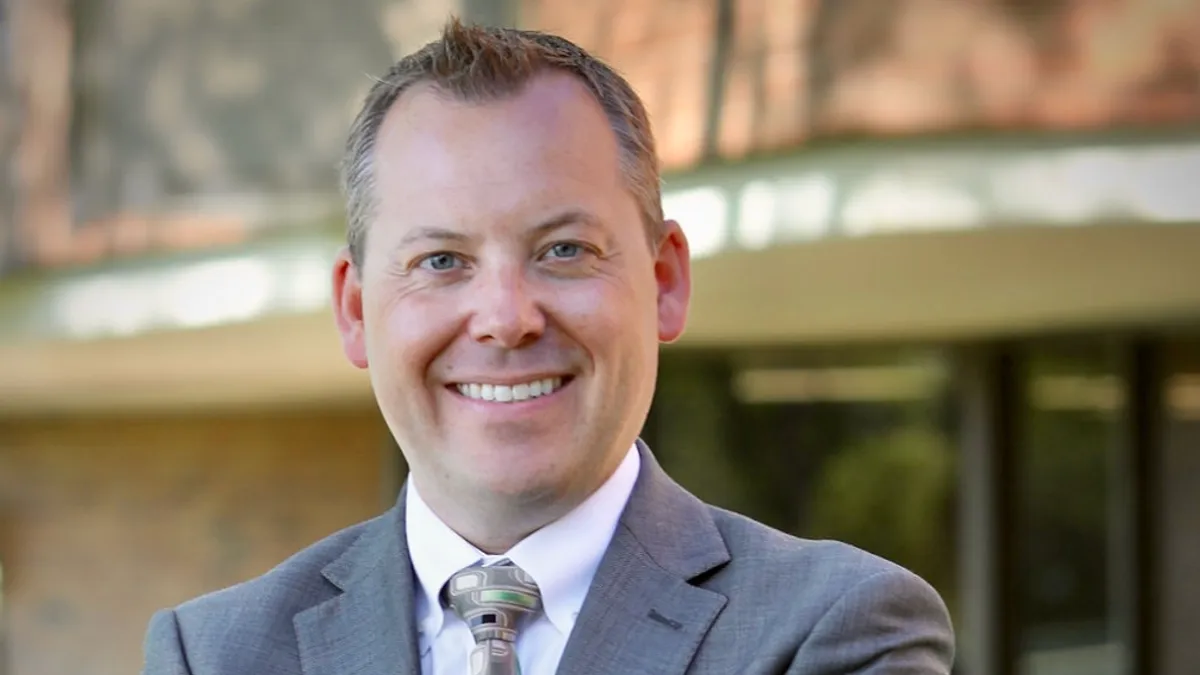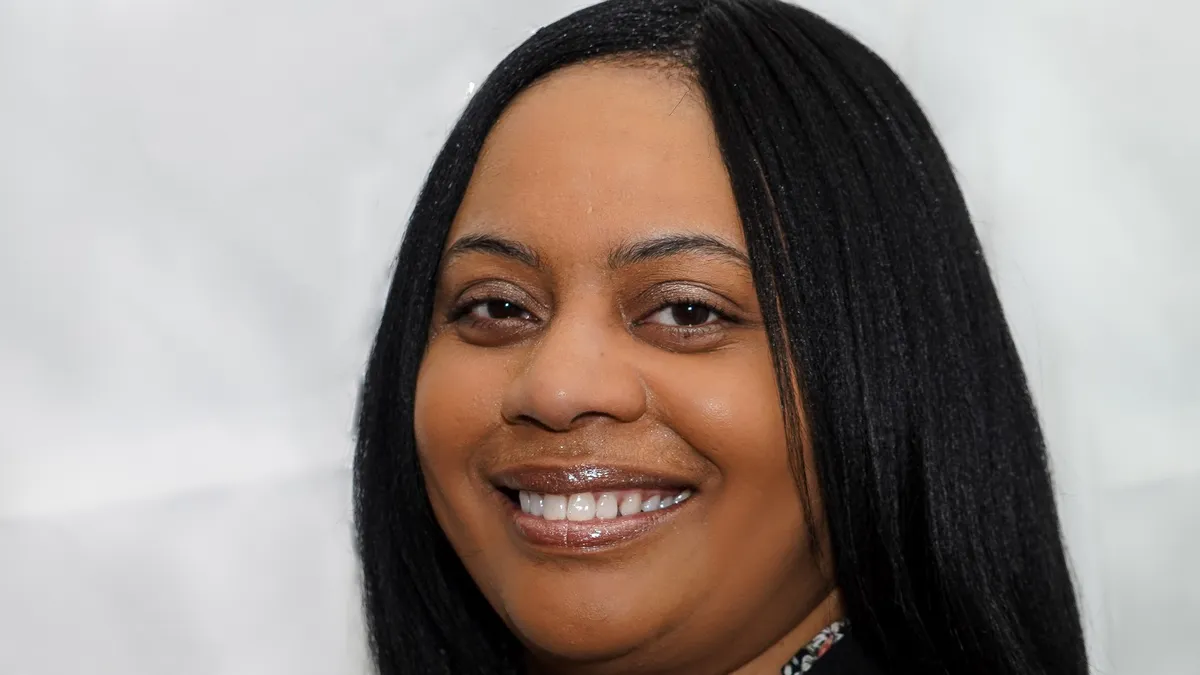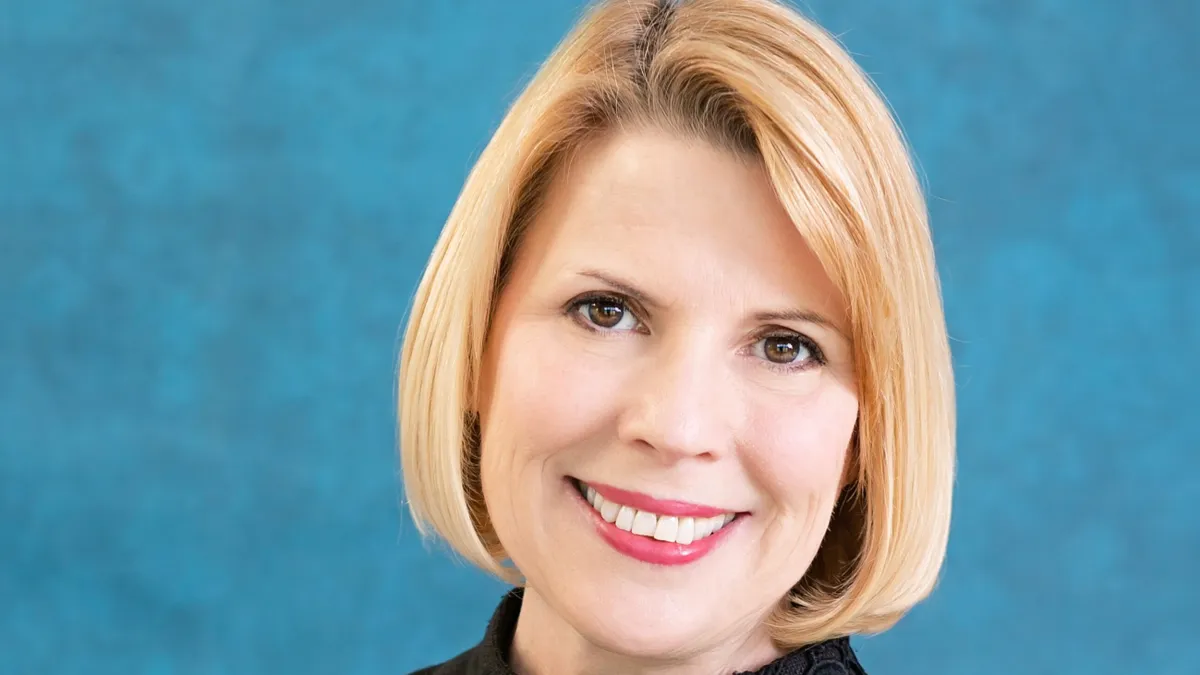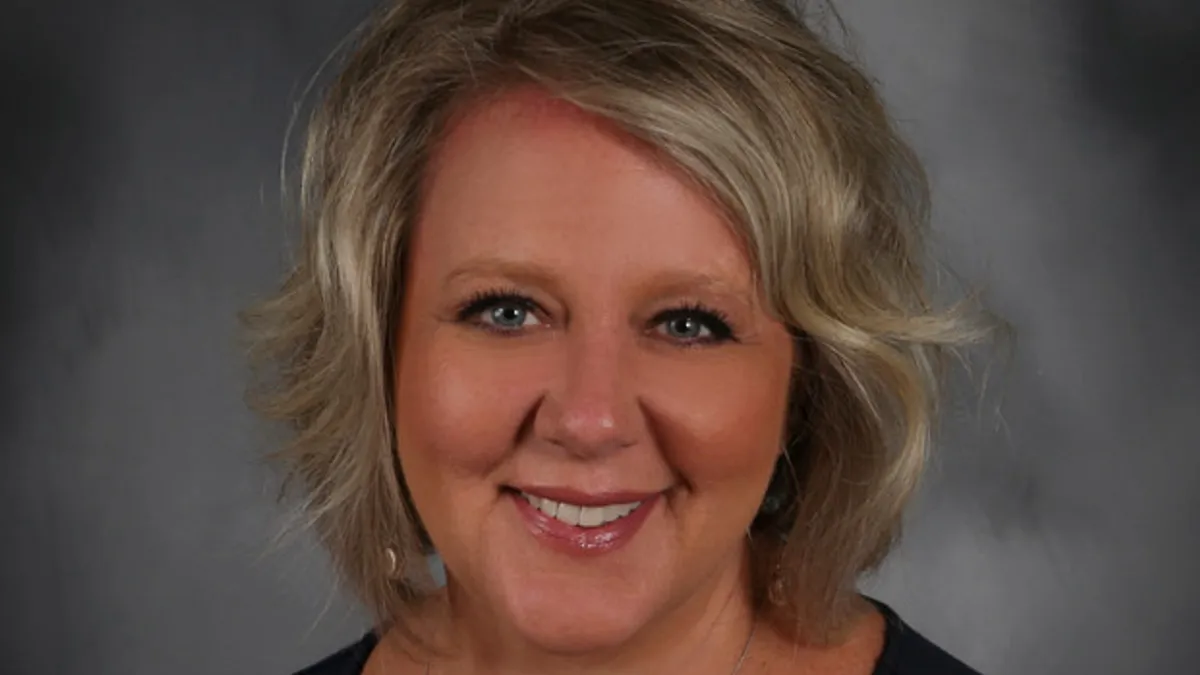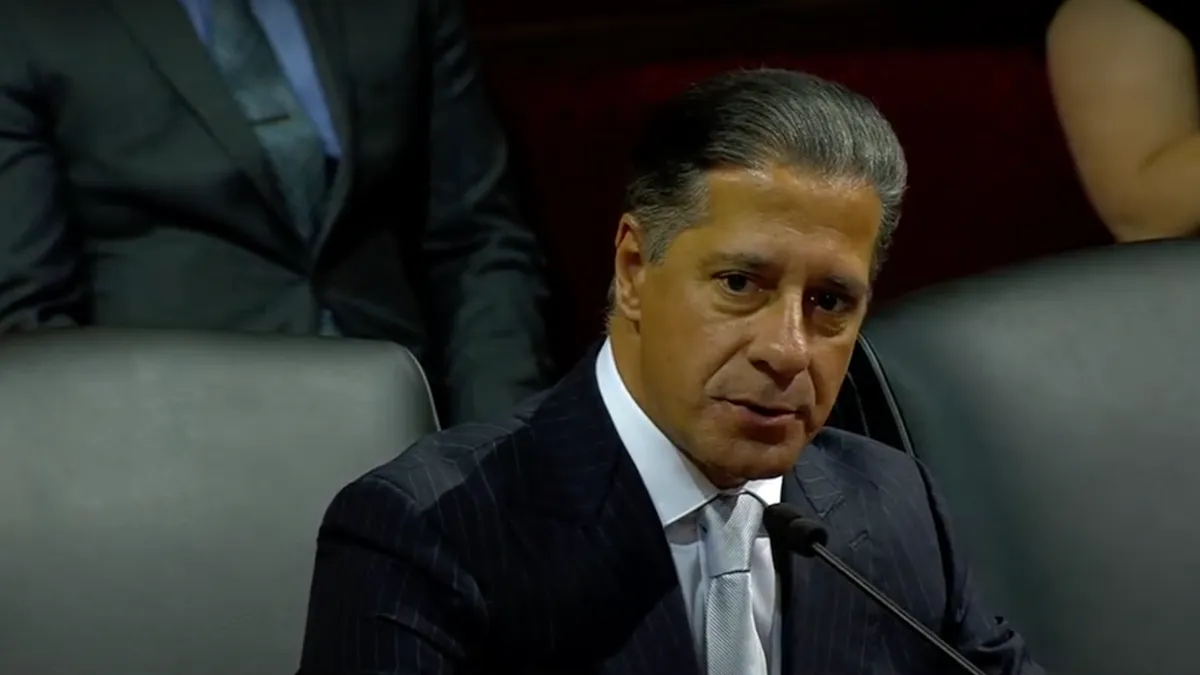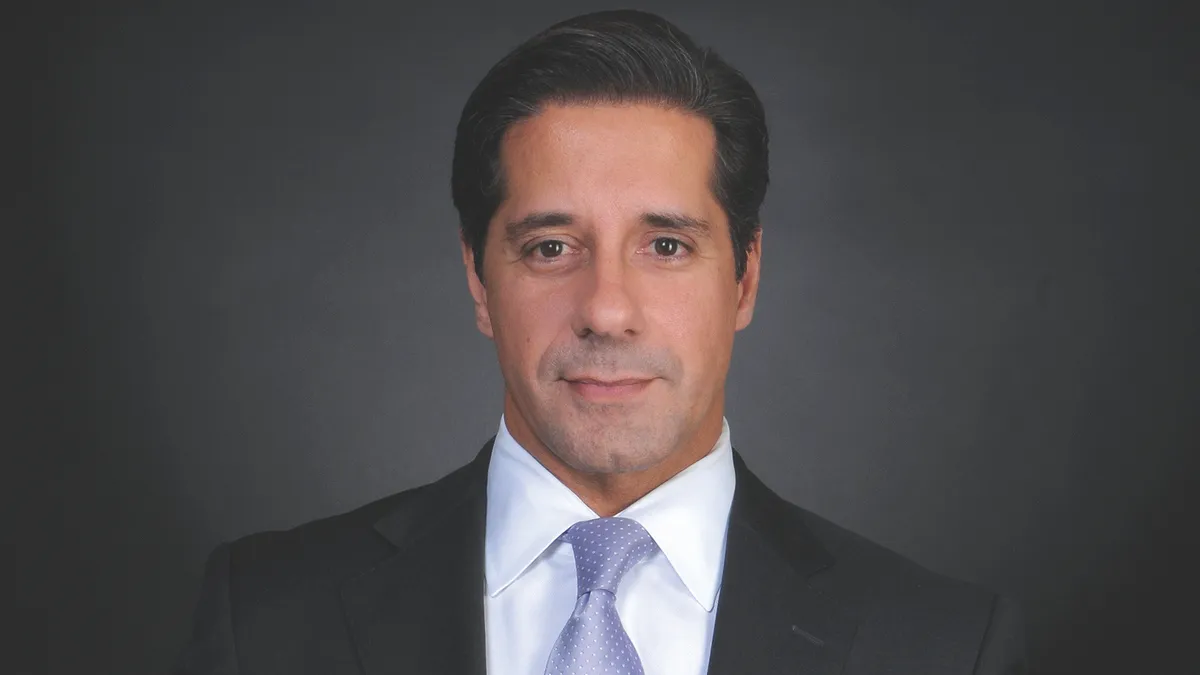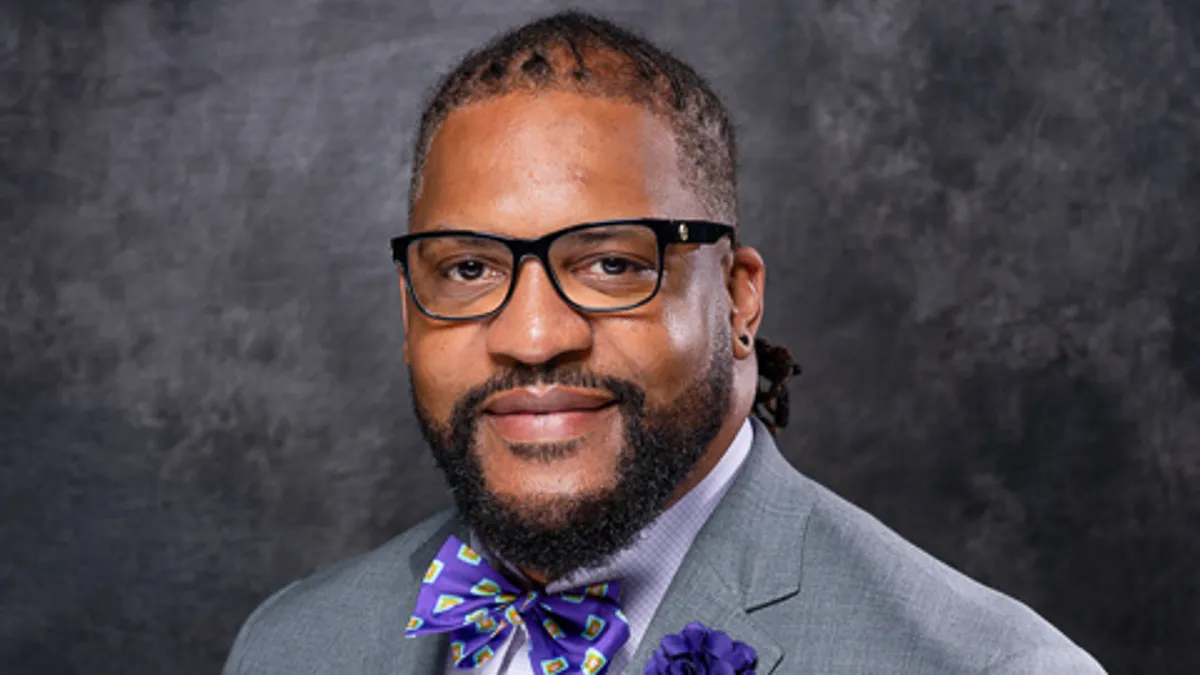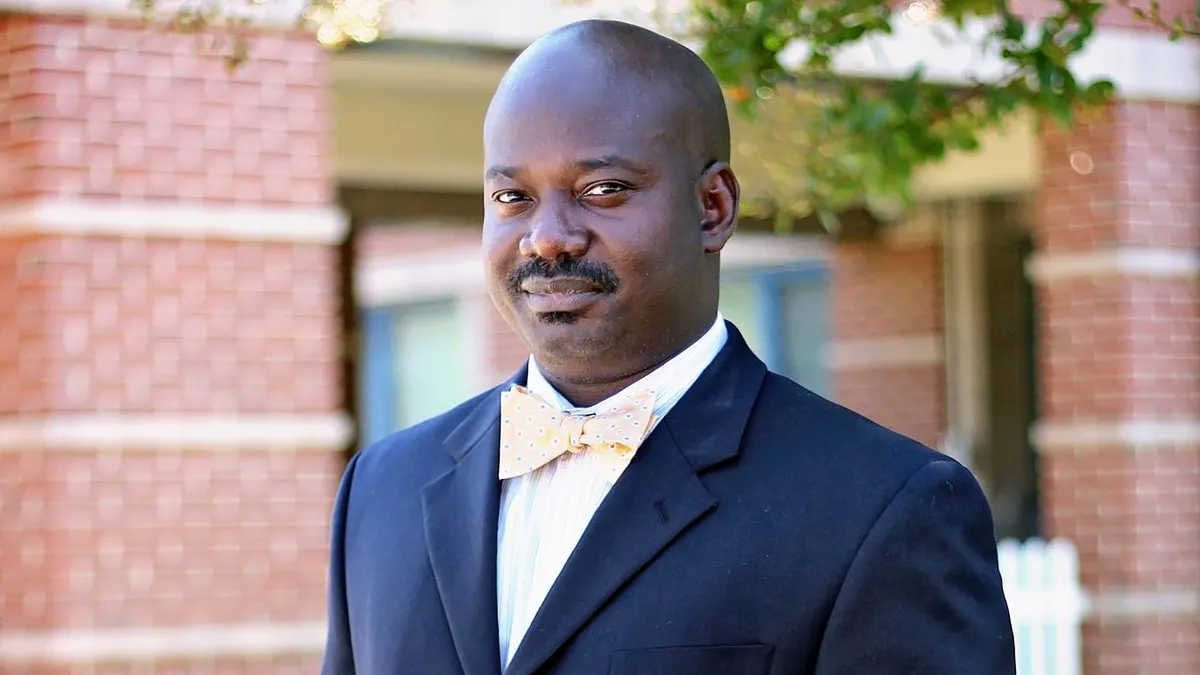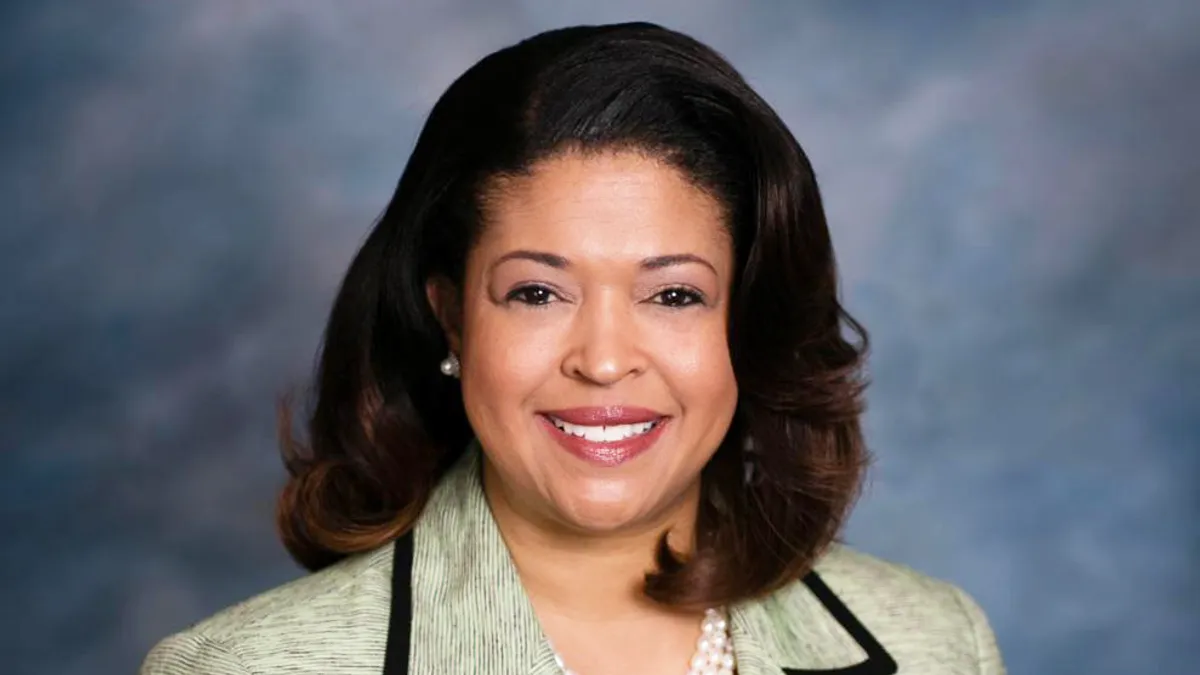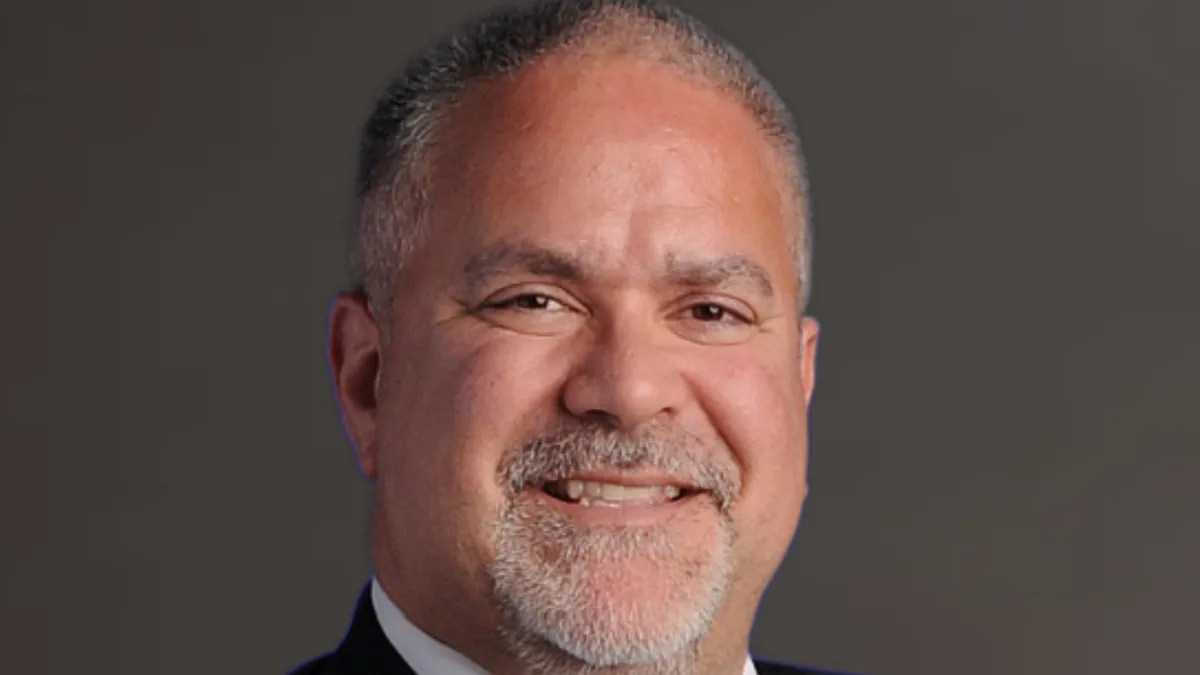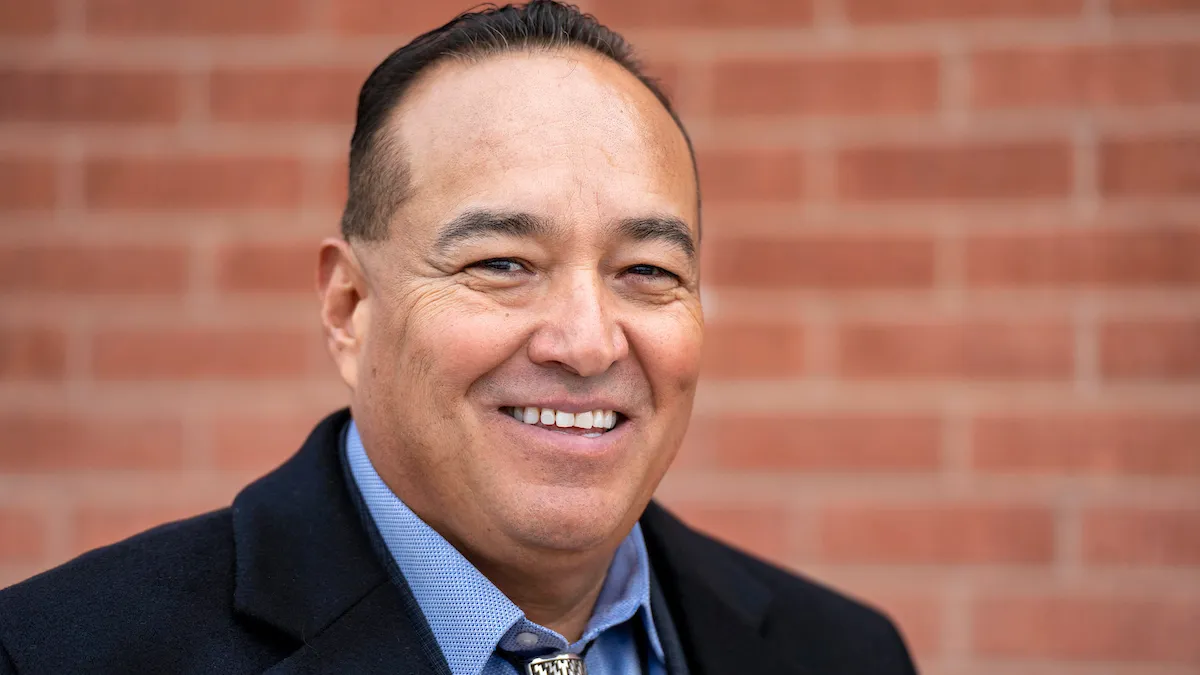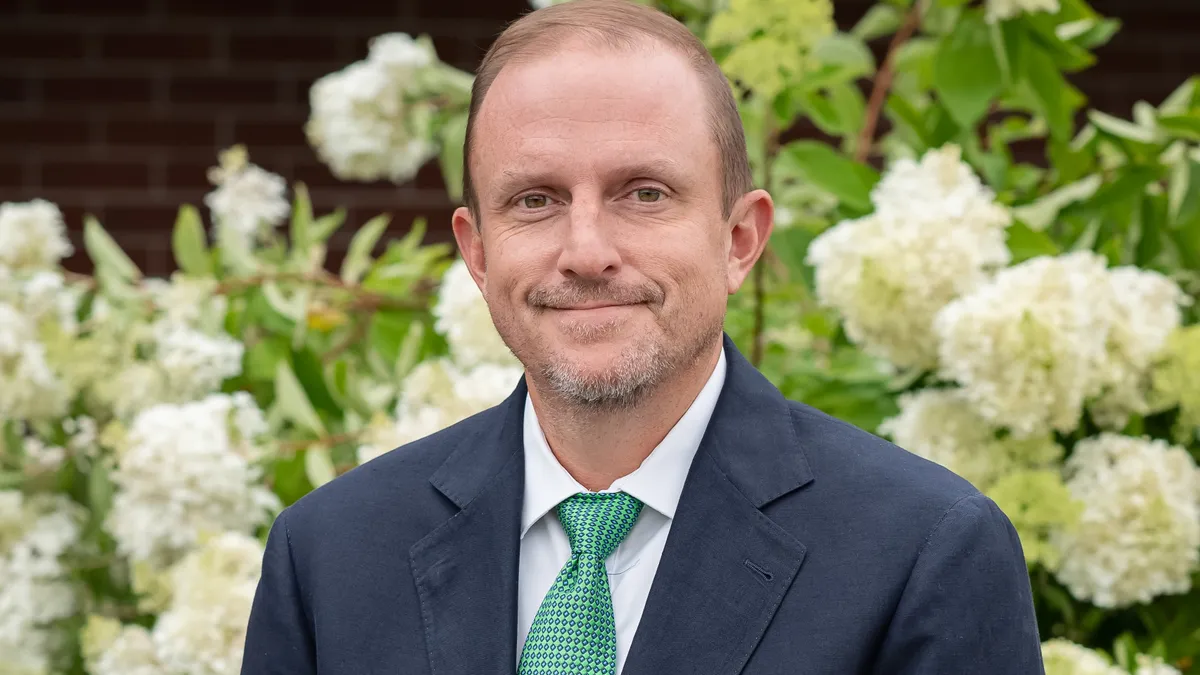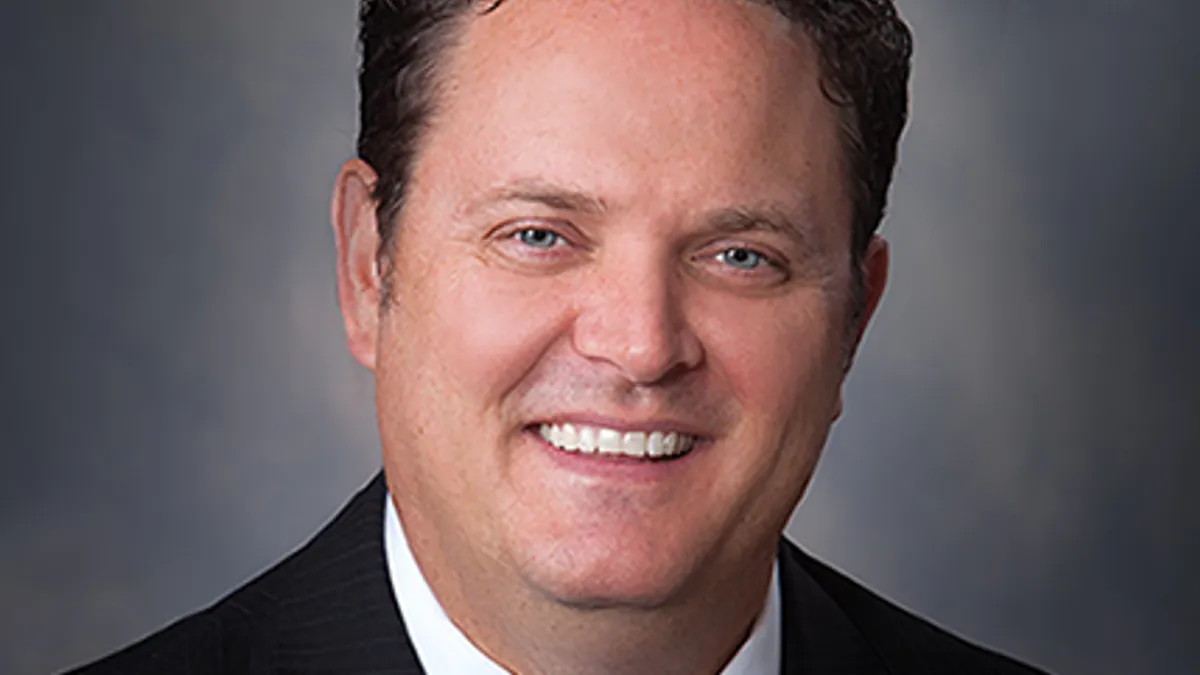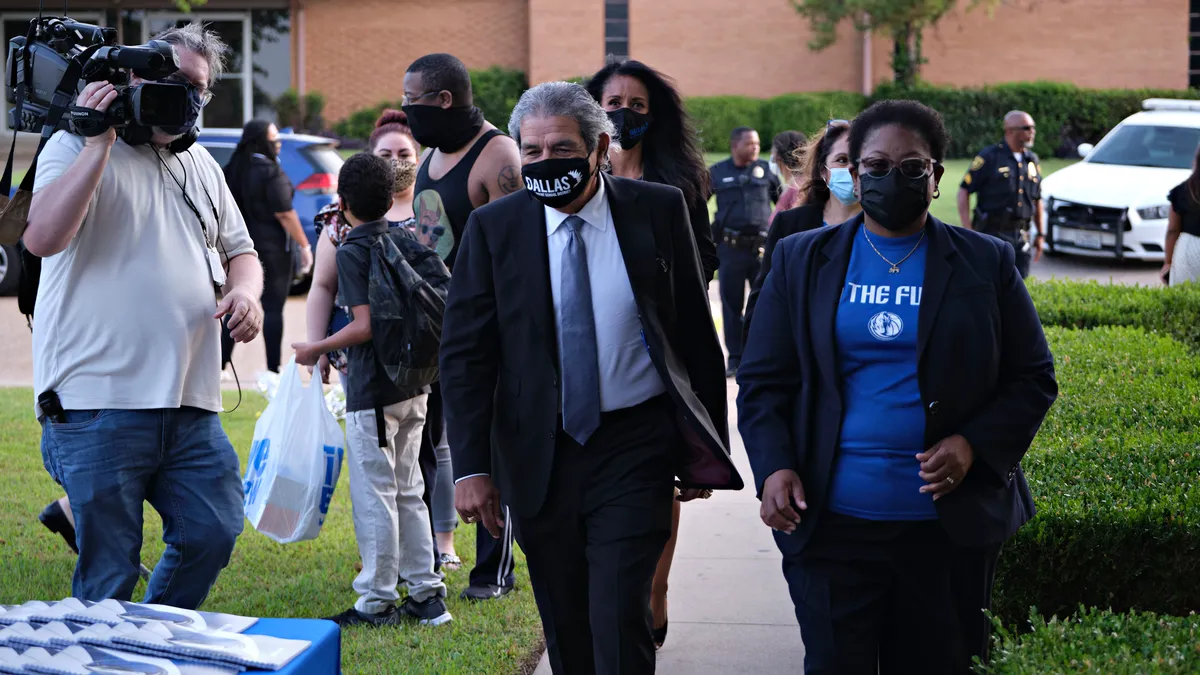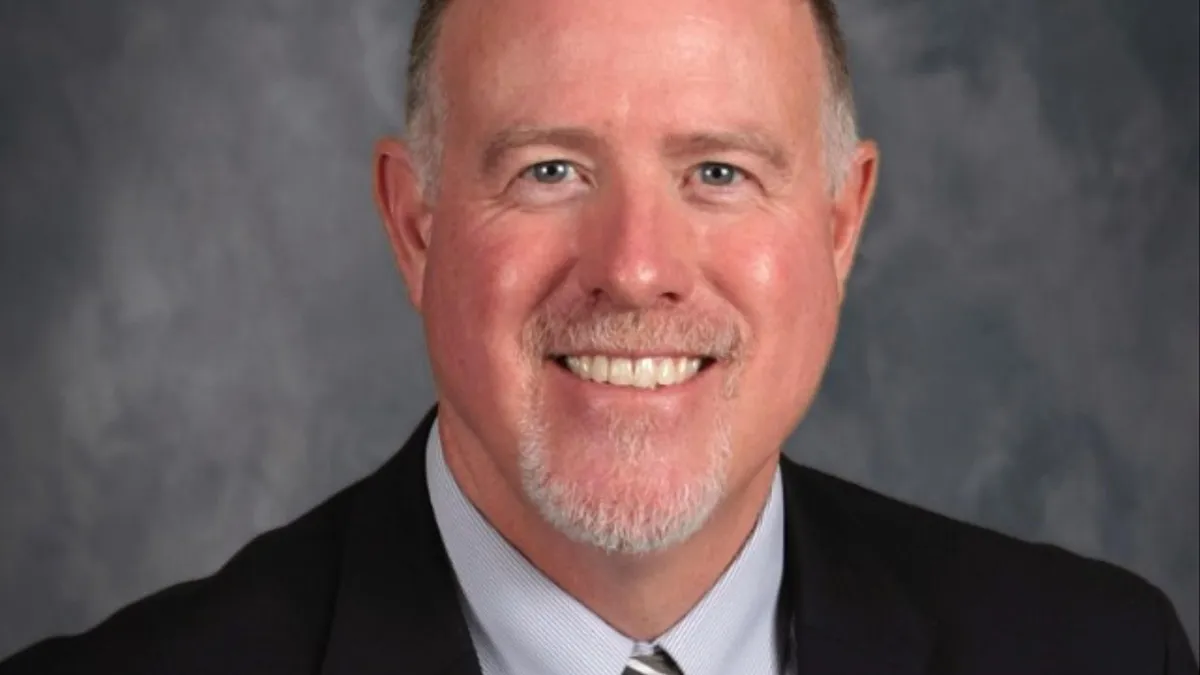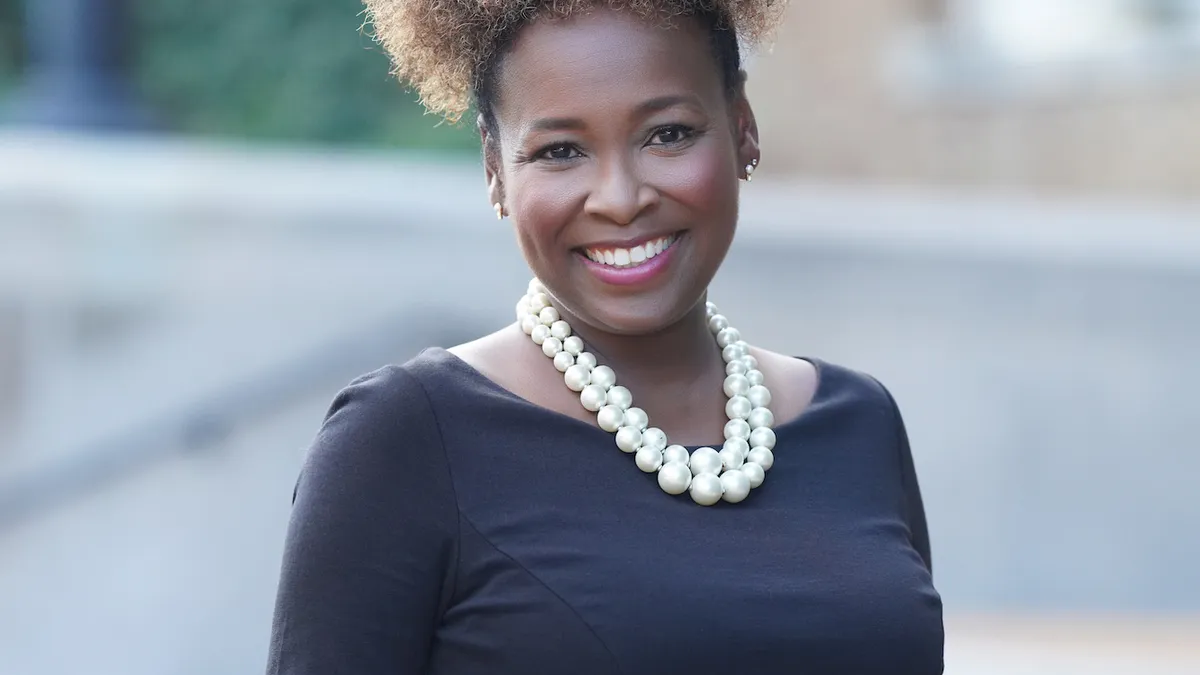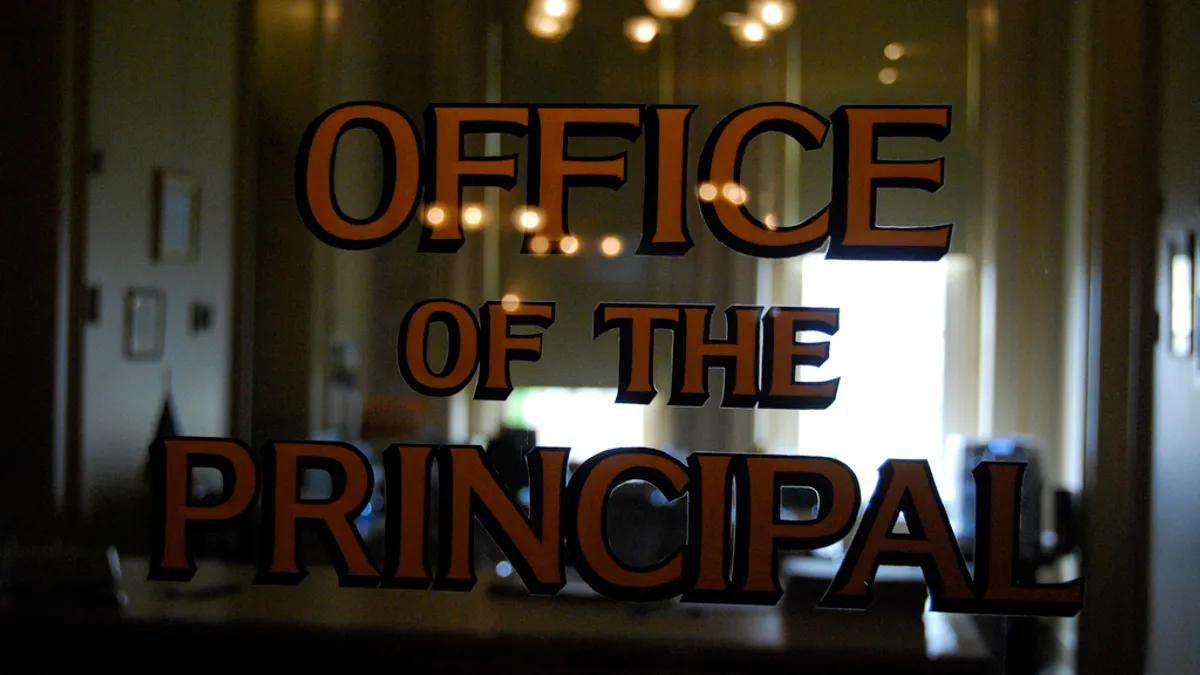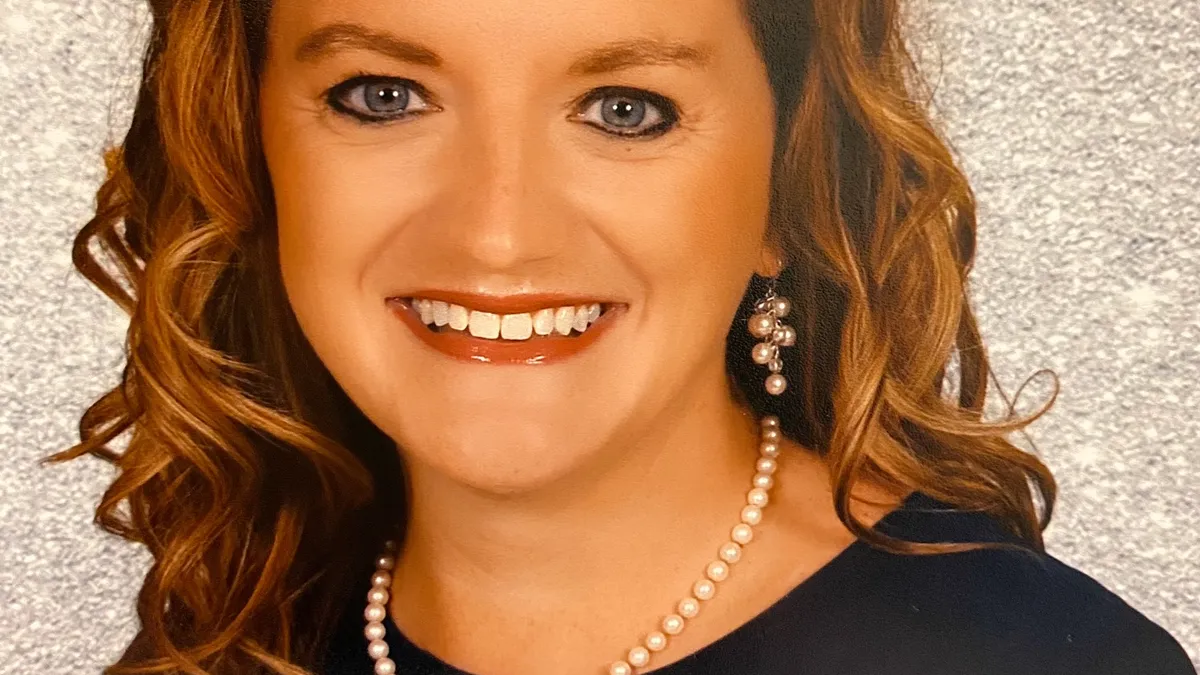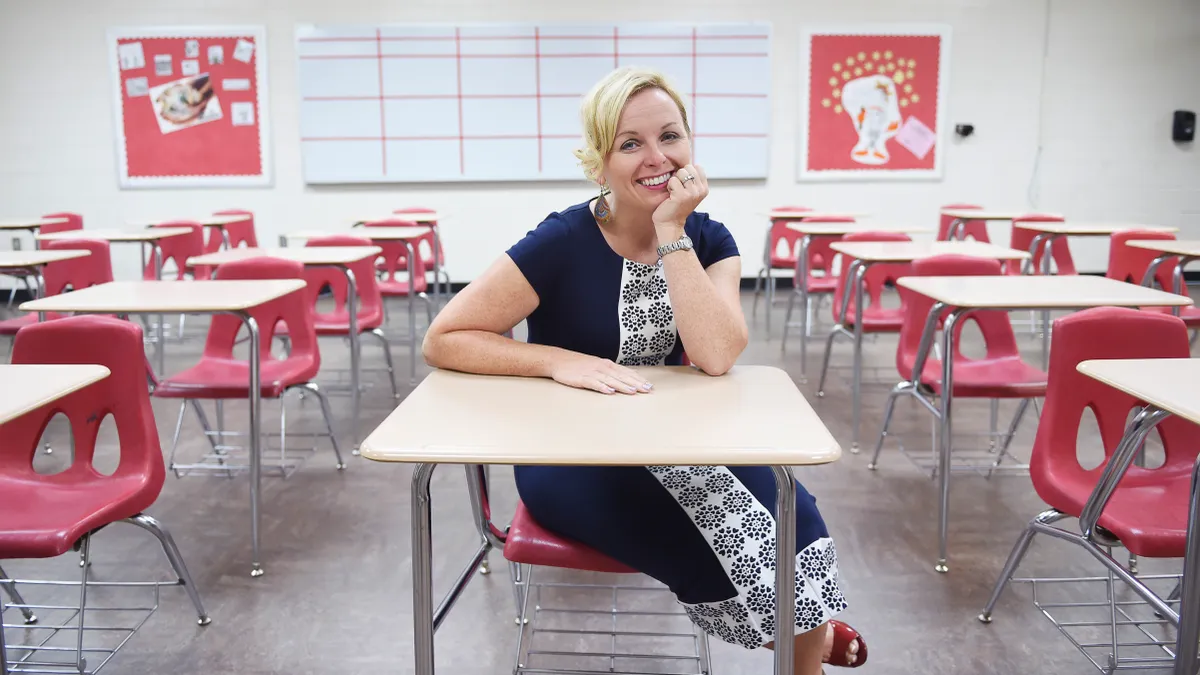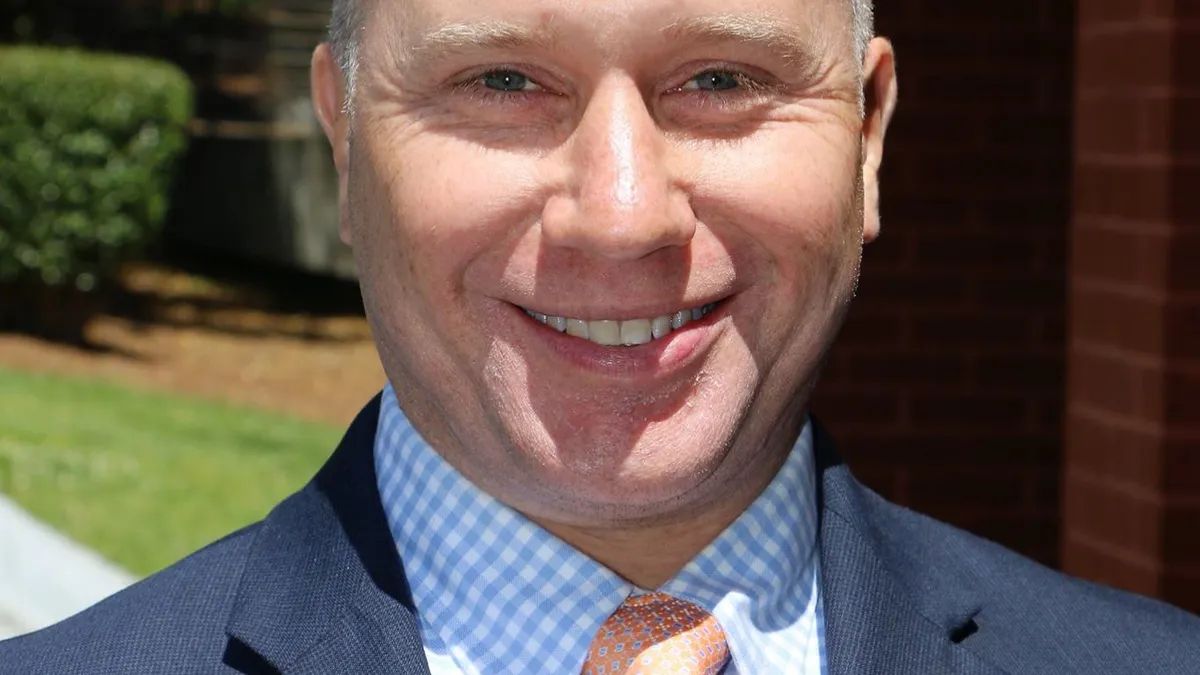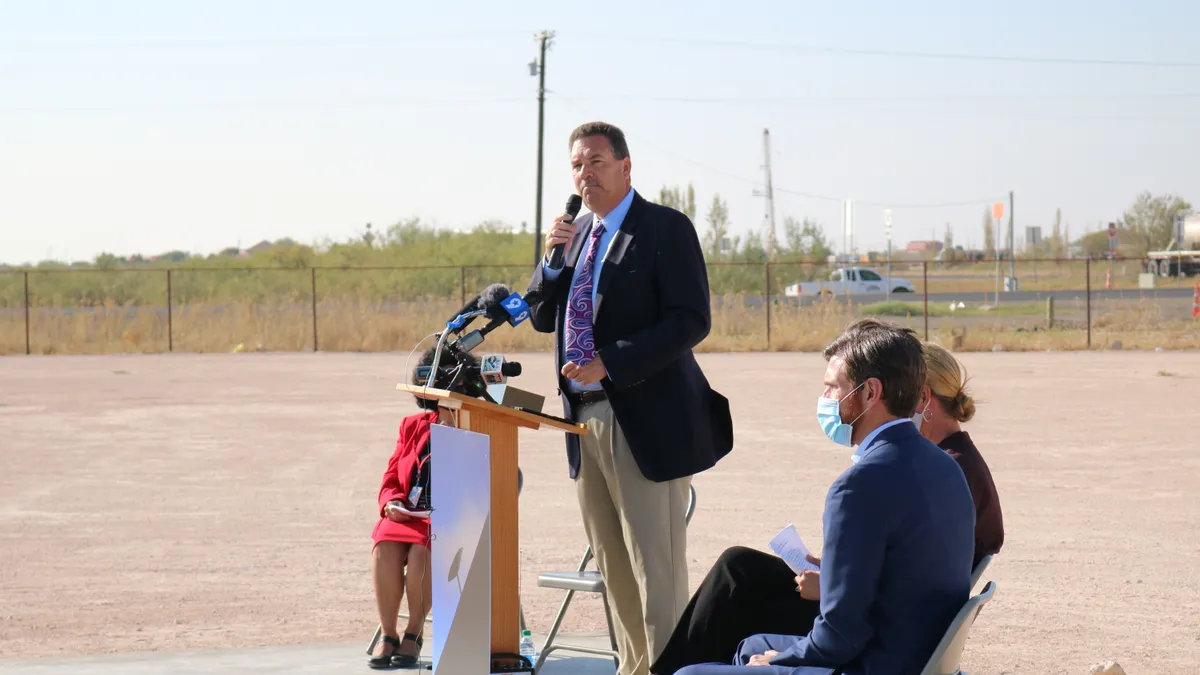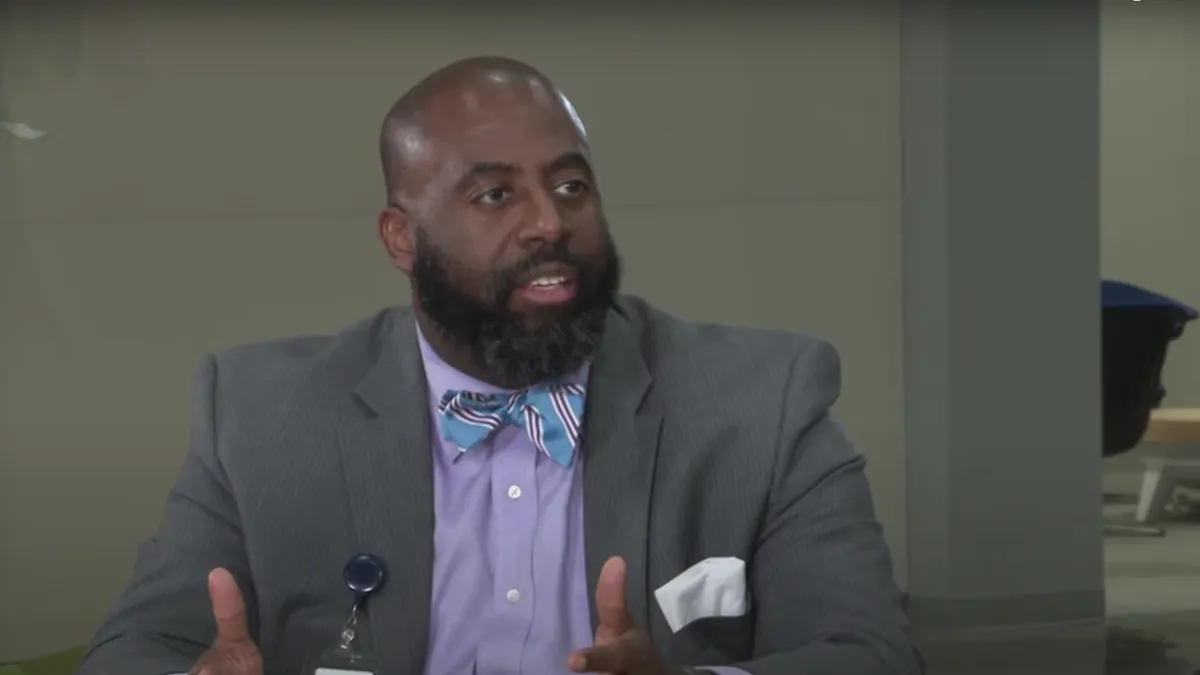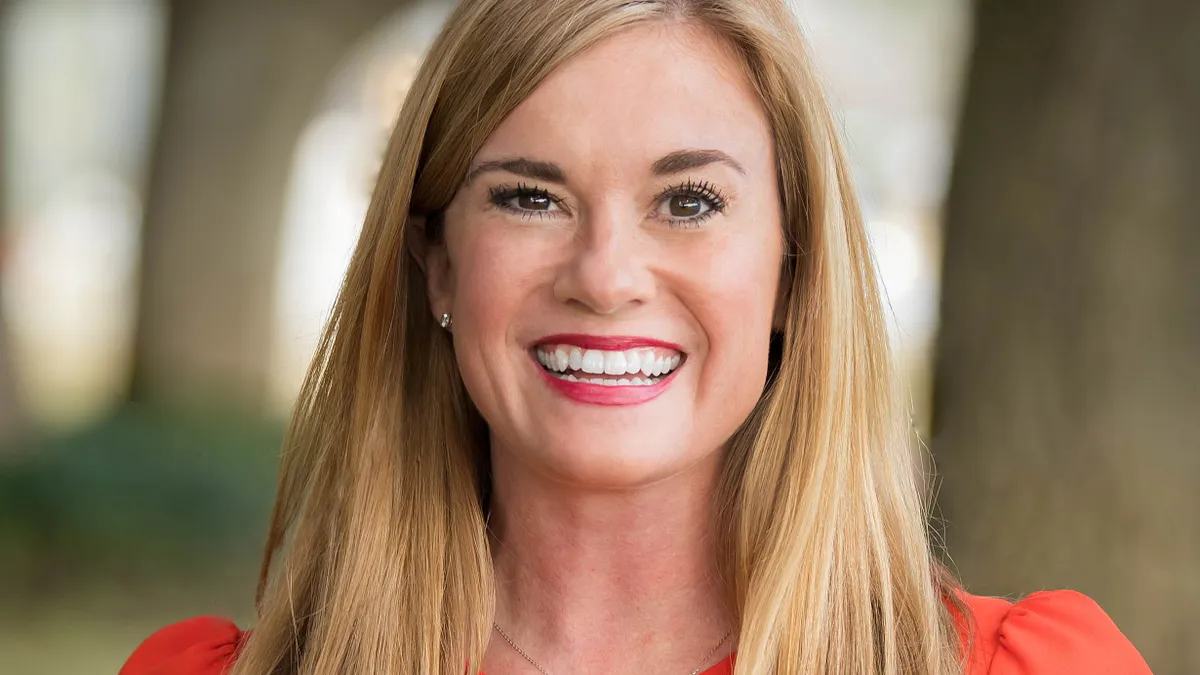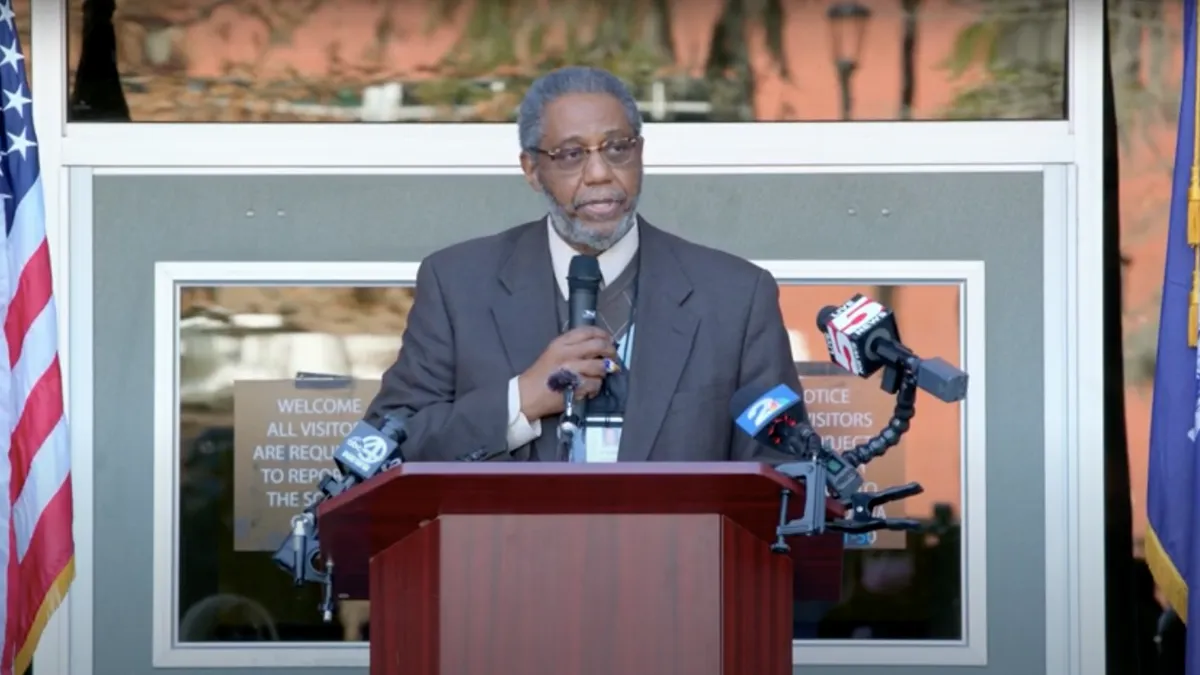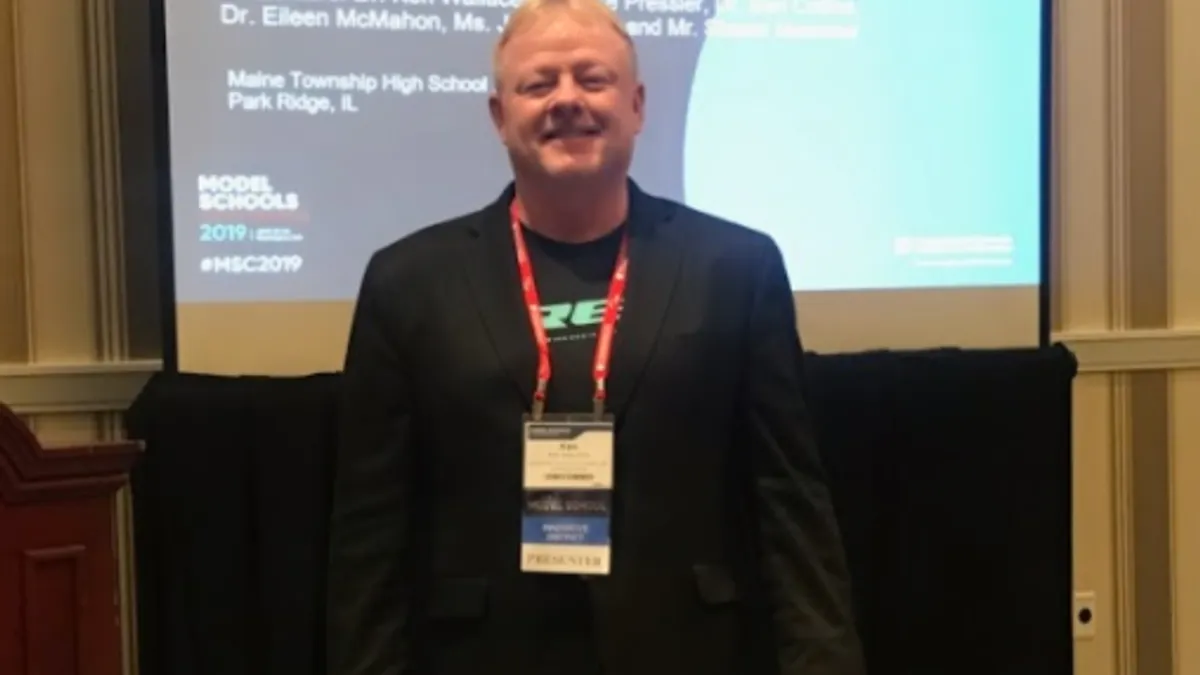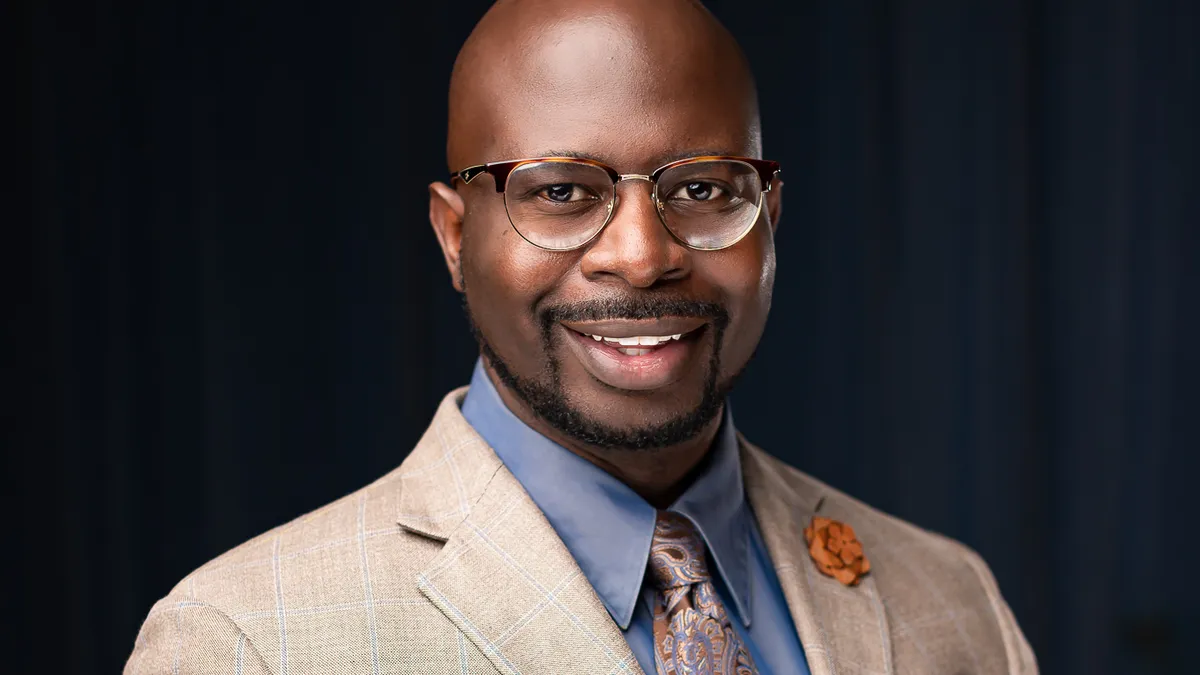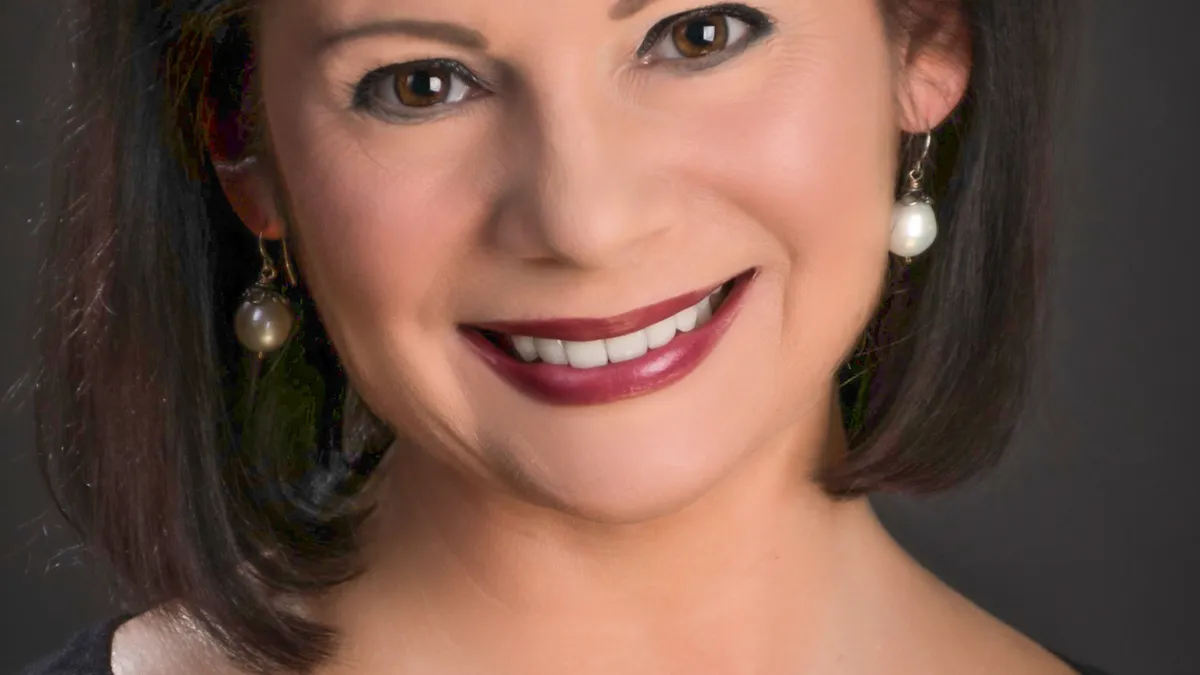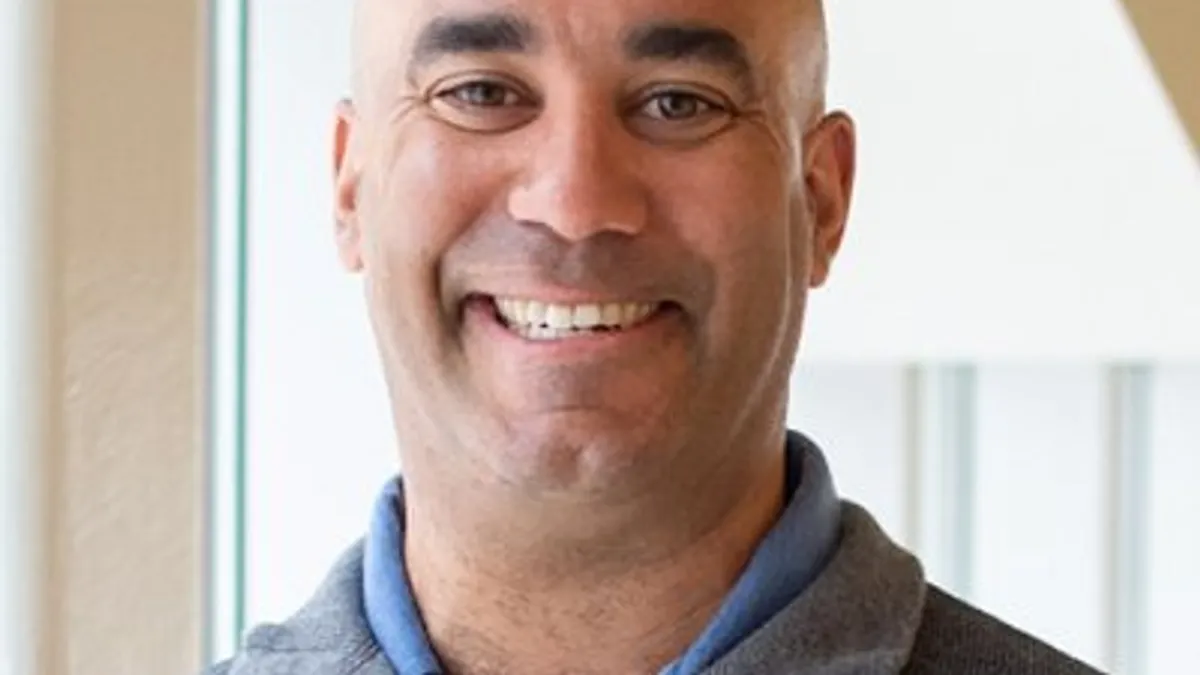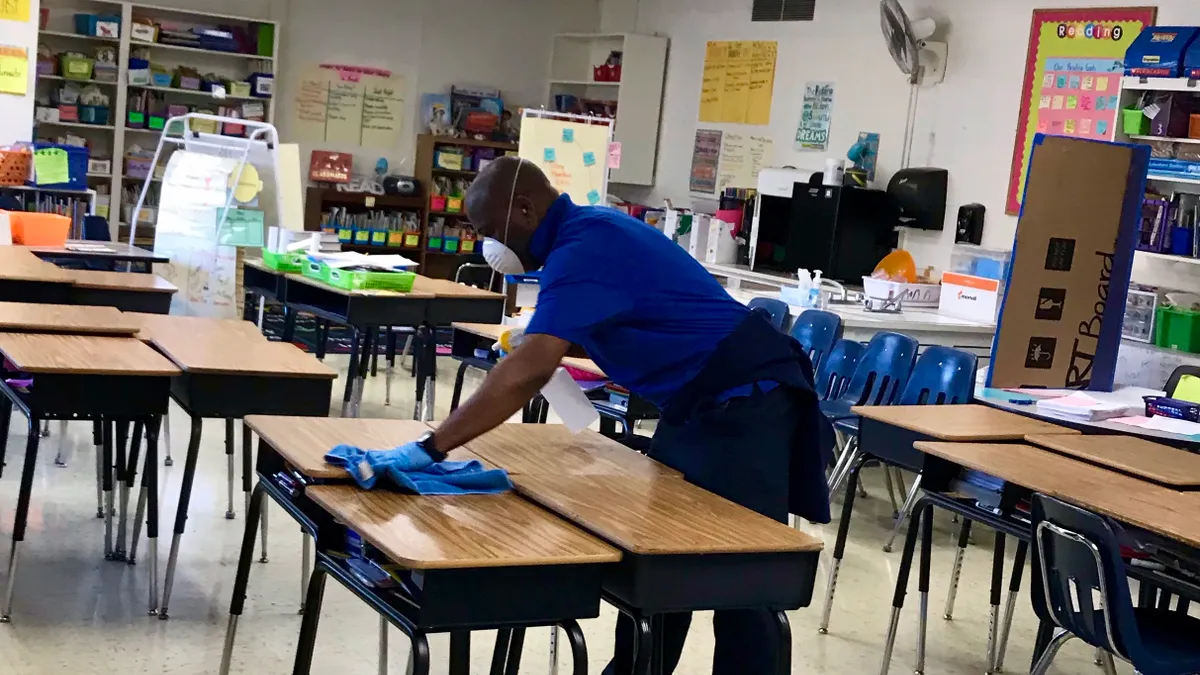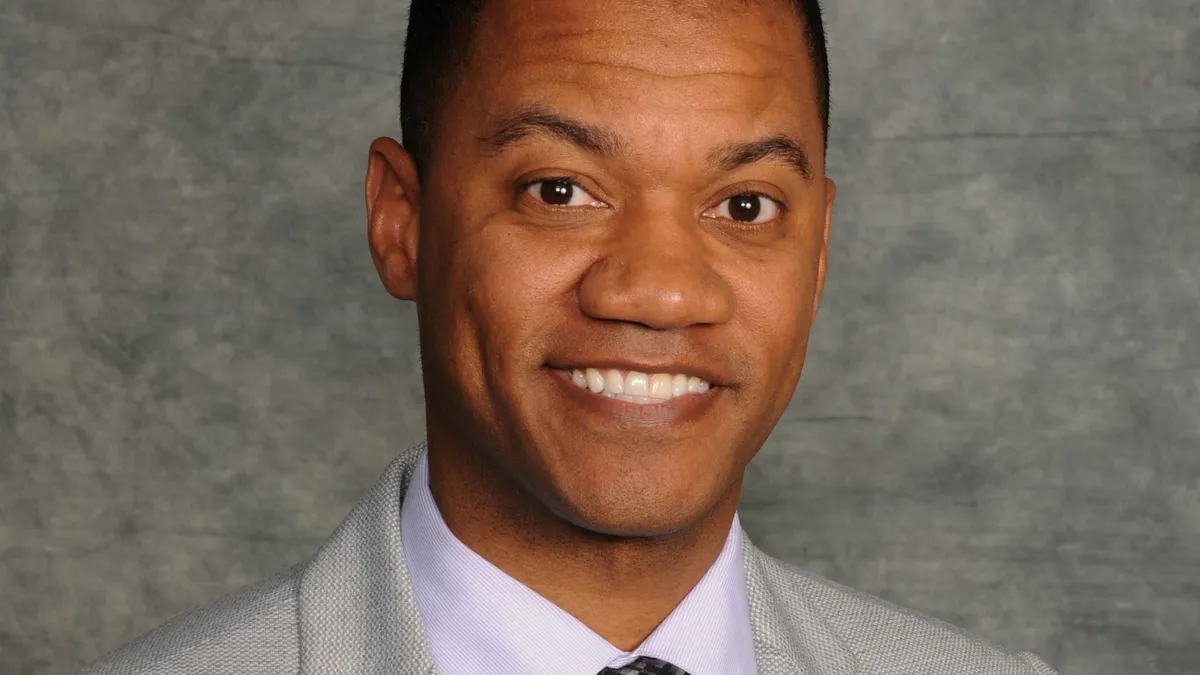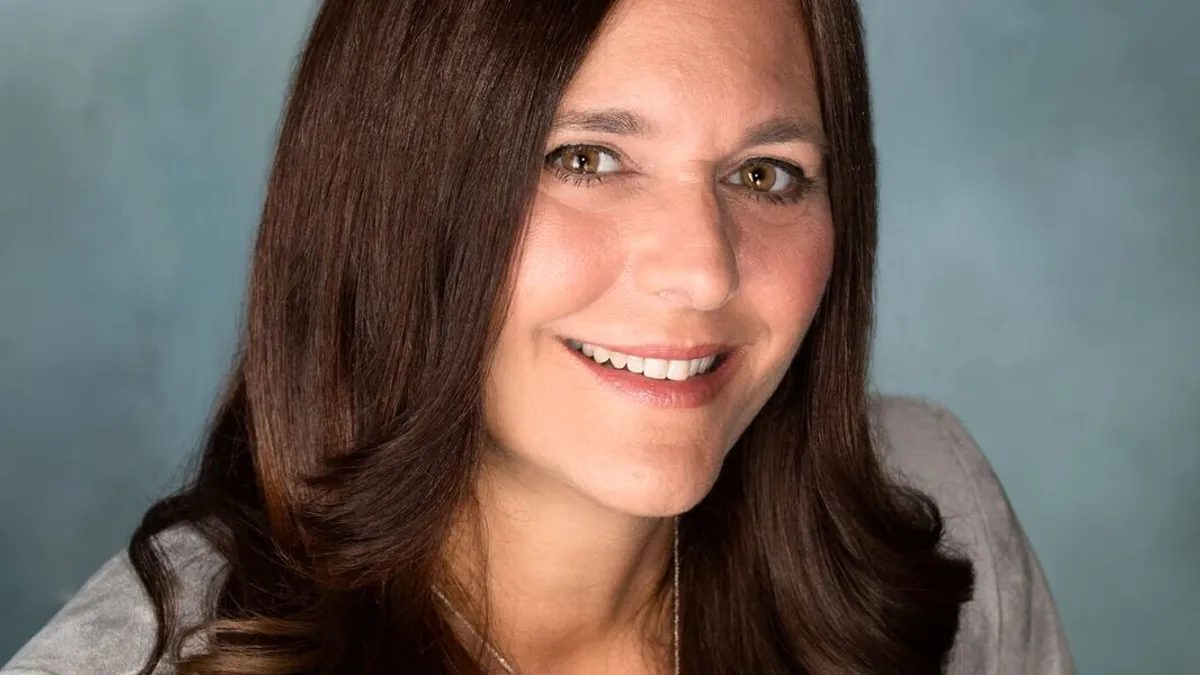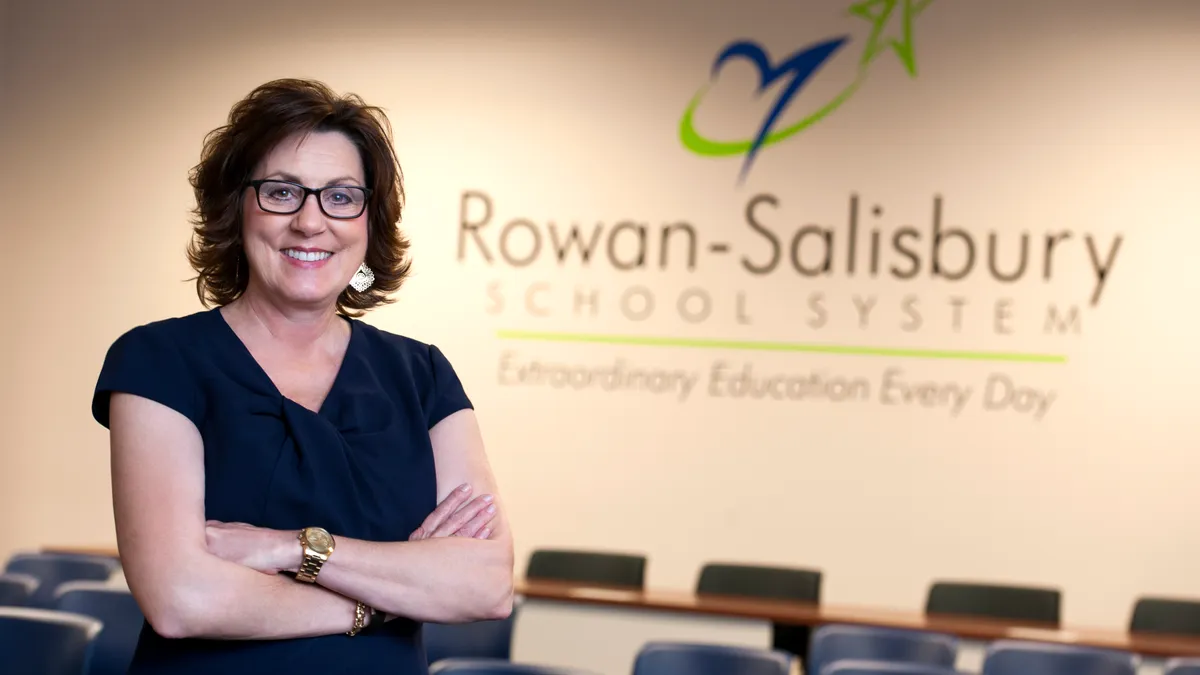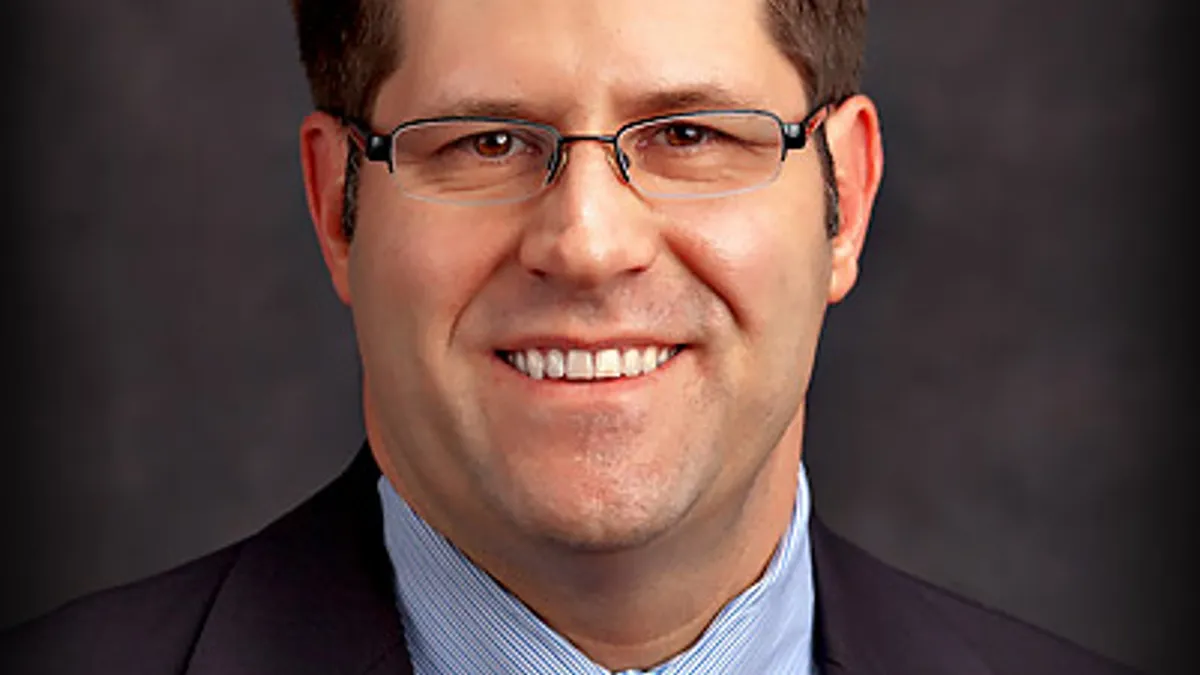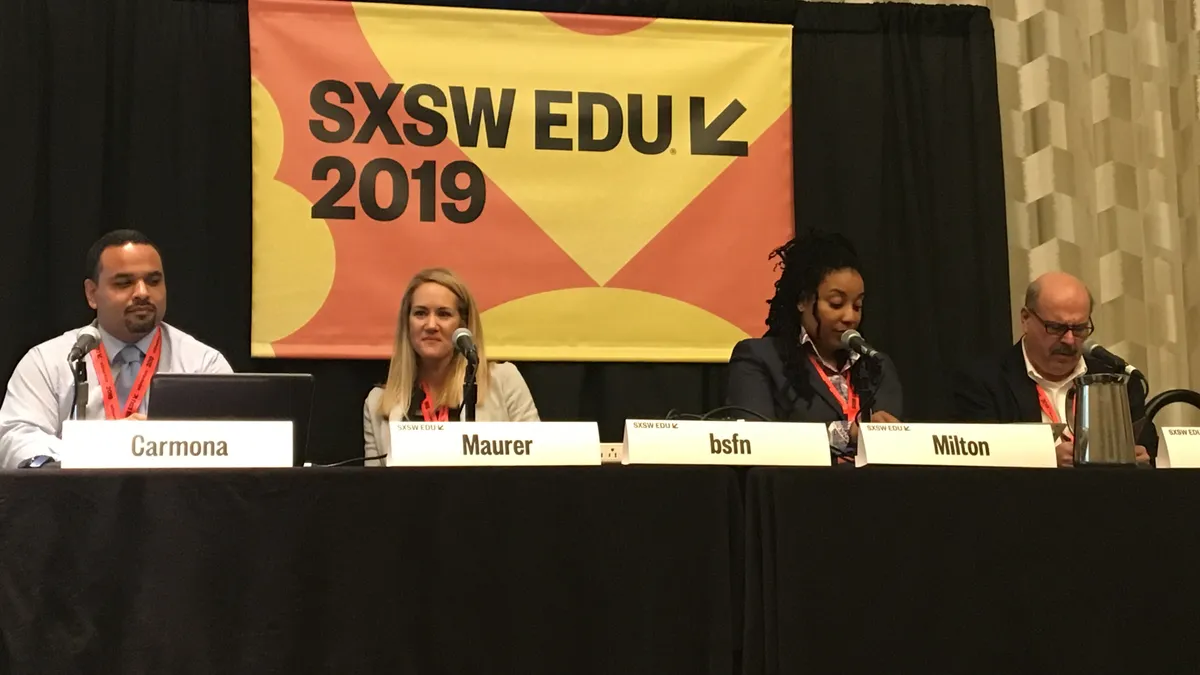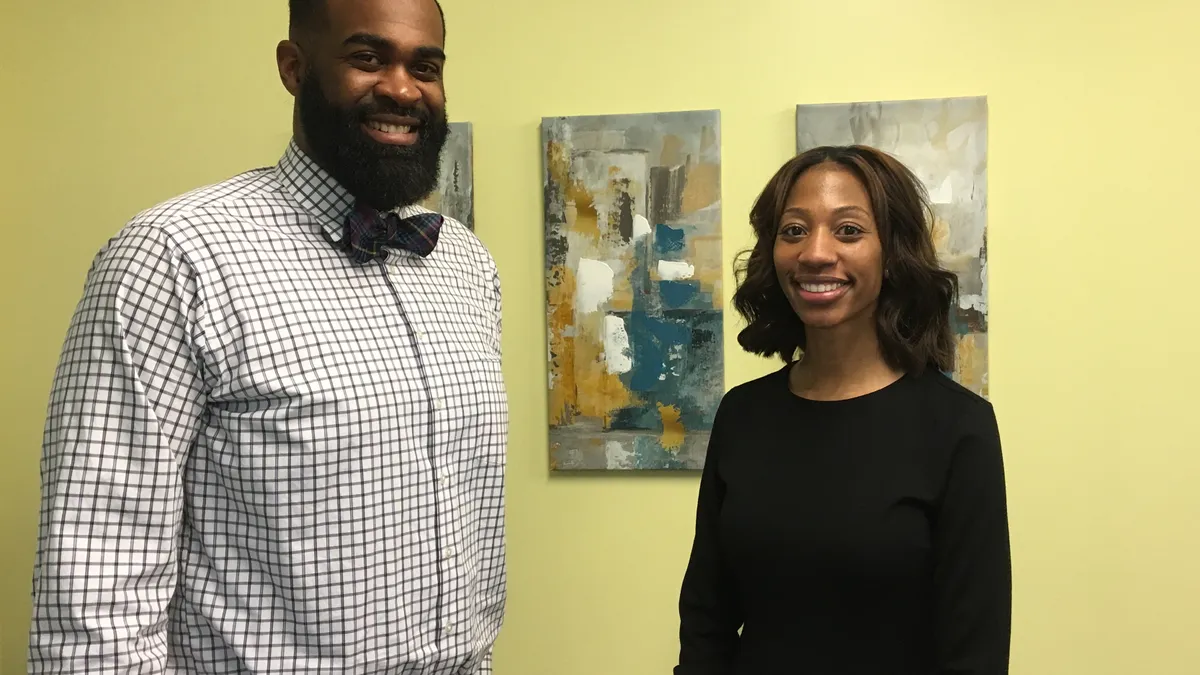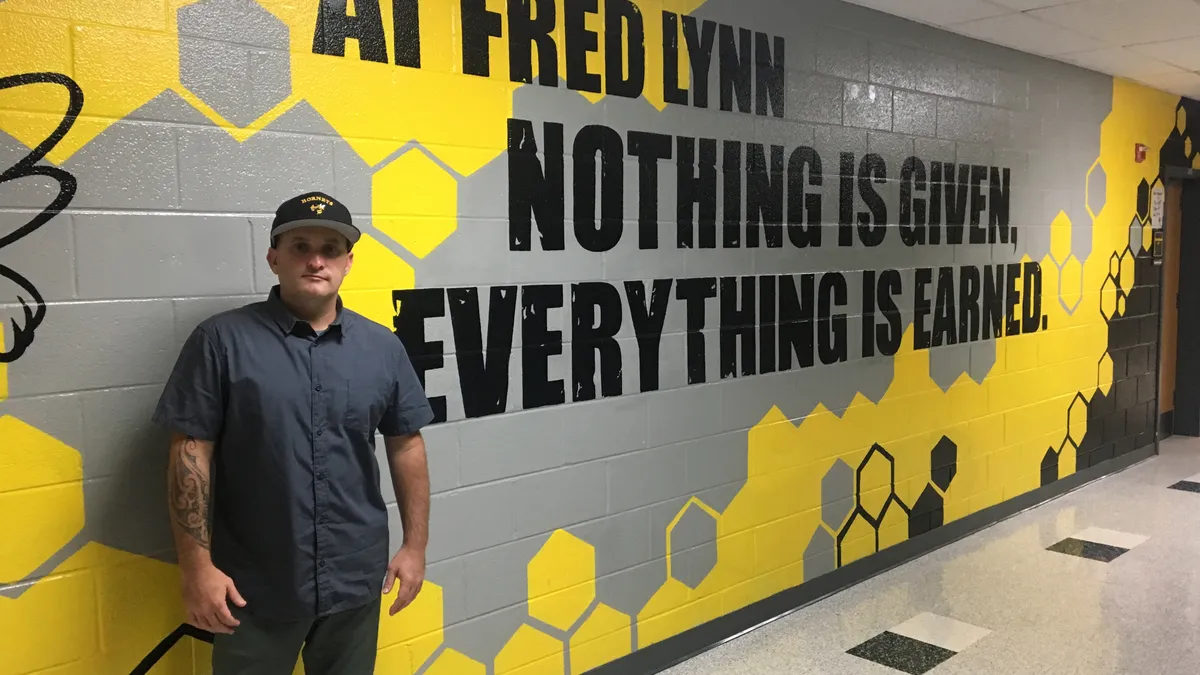Lessons In Leadership is an ongoing series in which K-12 principals and superintendents share their best practices and challenges overcome. For more installments, click here.
Access and equity are something of an obsession for Alberto Carvalho, the charismatic superintendent of Miami-Dade County Public Schools. During a conversation in his office, he recounted his post-high-school arrival in the U.S. as an undocumented immigrant from Portugal and jobs ranging from day laborer to dishwasher that he held between New York City and Miami before a chance meeting with late Republican Congressman E. Clay Shaw changed everything.
Impressed with Carvalho's story, Shaw helped him obtain a visa, allowing him to work and study in the U.S. Initially completing a biomedical sciences degree with a minor in history, he had aimed to attend medical school, "but gross anatomy was more gross than anything else."
He took a break from his studies to teach and was immediately hooked — and just as quickly annoyed by the bureaucracy that stood in the way of meaningful change. This set him on a path to administration that has been marked in large part by innovative choice offerings during his 11 years leading Miami Dade County Public Schools, which boasts his own iPrep Academy and a strong magnet program among its crown jewels.
Over the course of our chat, Carvalho shared his approach to getting the community on board with referendums that have boosted teacher salaries by as much as 23%, his inspiration for iPrep Academy, and how the district is scaling that work.
Editor's Note: The following interview has been edited for brevity and clarity.
EDUCATION DIVE: Your proactive approach to getting referendums passed is interesting in light of the teacher strikes that have happened in a lot of districts nationwide. Do you feel going straight to the community and really championing efforts to increase things like teacher salaries has helped avoid those issues in Miami?
ALBERTO CARVALHO: I think it did. No. 1, the elected school board was very much a leader in this regard alongside administration. And considering the fact Florida is a right-to-work state, so you really cannot strike, we felt it was the right thing to do.
And the return was very satisfactory. I mean, 71%. We actually increased the margin over the previous referendum, which makes sense because people want to care more for the teachers than buildings and technology.
We also obviously leveraged current events. You know the Marjory Stoneman Douglas event was a catastrophic tragedy, and we needed to find solutions. So we embedded as part of the proposition to the community additional safety investments.
[The case was made] not out of fear of a strike or not out of a fear of another tragedy, but mainly because this community actually trusts what we do. We are heavily audited. We report our process and our results whether they're good or bad. We know where the gaps are. We identify them and we negotiate solutions with the community, and I think the community appreciates that.
I think the labor unrest we've seen across the country certainly has not taken place here. In fact, some of that pressure and energy is directed at Tallahassee. We found our own solutions here locally. The call is for more action from the state to support public education, particularly teacher salaries. And this year appears it's going to be a banner year for teachers based on promises from the governor and even state leaders.
For superintendents in communities a little more skeptical of or slow to support a bond or referendum, what strategies would you recommend?
CARVALHO: You need to have results [to show]. We were in a position, leveraging the [2008] financial crisis and turning it into an opportunity for us. We were so low in terms of performance. There were dozens of D- and F-rated schools. Graduation rates were districtwide at 58%. Nine schools were under threat of being shut down by the state for performance.
The system was financially bankrupted, was academically bankrupted, and in my opinion ethically and morally bankrupted, because if you sacrifice your finances simultaneously with your poor function, you're unethical. You're not cutting it.
We went to work so aggressively and so strategically and cut so much of the dead wood around the district, literally reducing the downtown presence of individuals by as much as 50% and reinvesting those dollars back into the classroom and telling the story of what we were doing.
I believe in telling the story, which is strong advice for superintendents. Don't tell a story that doesn't exist because it will be punished. But if you tell a story realistically portraying the work and the results and the community understands that, the community shall reward you.
I believe in telling the story, which is strong advice for superintendents. Don't tell a story that doesn't exist because it will be punished.

Alberto Carvalho
Superintendent, Miami-Dade County Public Schools
In just one year, we stabilized the finances, improved our credit rating with the Standard and Poor's and Moody's in Wall Street, simultaneously prevented those nine schools from shutting down because we dramatically improved their performance, and then in subsequent years completely eliminated failure — three years in a row, no failing schools. [For the] second year in a row, this district, this pie that's complex in diversity and in poverty, is an A-rated district, soaring above all other large urban districts in the country.
When you achieve those types of results, my advice is trumpet it throughout the community. Tell the story. Employ all of the avenues you currently have. My phone is my megaphone; I use social media to tell people what I'm doing, to tell people what our principals and teachers are doing, and the results obtained. So lead with the results, lead from a perspective of benefiting the students and the stakeholders of education, engage the business community...the faith-based community. I have student groups. Today I had a town hall meeting with the senior high school students because we are contemplating changing the bell schedule in Miami-Dade.
So who should you speak with? Everyone. I believe in being strategic, telling people where we're going and why after we've done the research, then implementing with high fidelity and measuring the results along the way, recalibrating if there's a need to and constantly assessing. With results coming in, publish them, be honest about them, and make decisions as to whether to continue or cease some of the activities.
Whether they are attendance, the elimination of outdoor suspensions, academic achievement, graduation rates, tell the story to the community and then leverage that credit. Cash it in for something. This is not a difficult process. But if you don't tell the story, somebody will tell a story for you without the interest of the students necessarily being represented. And that's not been the case here.
During the FETC conference, I got to tour your iPrep Academy. Tell me about your inspiration for it and how those experiences have further informed your approach to the superintendency.
CARVALHO: With all we had done to stabilize the system within the first year — iPrep has now been open 10 years — I was inspired by two things.
No. 1, the iPhone itself. I kept looking at these applications and how we can digitally navigate experiences through applications. It's colorful. You tap on one, it vibrates, changes color, it brings a new screen that opens new doors. To me, when the iPhone first came out, it was revolutionary. The second inspiration was my daughter's use of the iPhone and her perspective of school. She described her own experience in school as something that quite frankly saddened me deeply.
Cold environments, figuratively and literally. Environments where students are supposed to negotiate spaces, forms that are as separated from the function they represent as anything could be, no opportunity at that time for individualized attention to students or to meet students where they are and personalize the learning experience, exchanging personal responsibility for freedom of movement, and not incorporating the things we find adequate for us when we decide to read a book or watch TV, which is find a comfortable place.
At home, nobody tells us where to sit and how to sit and for how long to enjoy what we're reading. So the idea of iPrep came from that — my own frustration over what the description of education was like, what the school day felt like and the technology available.
I thought, "Why not build a school where students negotiate the space much like we negotiate the applications on an iPhone, and make it as vibrant, as colorful, as exciting as that experience is, and then eliminate the things that are annoying?”
So no class bells. You can get up anytime you want, can sit down. Nobody will ever tell you to turn off your phone or to take the earbuds off your ears if you're frustrated. You can go for a mile run on a treadmill or you can bike or you can do algebra or read Shakespeare as you're biking or running. Or if you just want to catch up on the news for a little bit, that's fine. If you want to sit on the sofa, put your feet up, take off your shoes, that's good too. If you want to listen to a little bit of music because you need to, that's OK.
Now to the adults, it's very confusing. They think, “Oh my God, we just lost control of everything.” But the remarkable thing is the adults there are best-in-class teachers. They are knowledge facilitators who enable knowledge acquisition rather than being the sole providers of it to the students. And even though the environment seems to be very free and it is very independent — and it is — it relies on a great deal of student responsibility we teach upfront.
Make no mistake: The algorithms of the science and technology behind it is powerful. So for every one of the screens open in front of the students, teachers can actually see each one of them as a tile in their own computers, and the progression of students through the curriculum is closely monitored. So yes, there is direct instruction, but a lot less than most schools.
There's a great deal more teamwork and collaborative work. There is a higher level of rigor associated with what the students learn. The schedule is different. They start later and they leave earlier than other high school students, even though it's a pre-K through 12th grade. Every student leaves there with two years of college already done.
That kind of model is also, over the last several years especially, one there's been a lot of push to move toward. But part of the difficulty some people have, especially with scaling that to a traditional public school where there’s maybe a larger student body, is addressing that student-to-teacher ratio.
CARVALHO: So, iPrep is now close to a thousand students, so it's not small anymore. Going back to your previous question of how has that influenced me as superintendent, what I believe is if it's good for some, it should be made accessible to everyone.
The best way — and again, I'm science-trained — to get that reform rolling is through the “viral infection” of the environment. So what we've done is, in a very deliberate and strategic way, created dozens of iPrep academies embedded in high schools. We now have 60 iPreps, 49 in middle schools, 11 in traditional high schools, to begin the process.
You're absolutely right it would be very difficult to just start one school year with every single student in an iPrep environment, because the buildings are not designed as such. If form and function are to travel the same journey together, it would require a great deal of investment. The training and professional development needs to be accelerated. The availability of technology and digital content in those environments also. And you don't have many opportunities to get it right in education.
You have two models: Either you open iPrep from the very beginning as an iPrep environment or you infect the environment with a school-within-a-school that progressively grows via student interest, teacher interest and the required professional development. We now have in every single middle school in Miami-Dade an iPrep Academy, and what's taught in those is actually mathematics, because mathematics was the nut we needed to crack in middle schools.
The results are surging. And it will grow with time. We felt that was a better approach than just doing an “extreme makeover” to a school that would be superficial in nature and probably would not catch on.
We did that also because that's the way we built [the original] iPrep. We didn't build it day one for a thousand students. We started with three pre-K and kindergarten classes. The following year, we expanded the lower academy into 1st grade, and we opened the high school with the 11th-graders only and then allowed the grades to move up and build down as we recruited. It took a number of years to build that school the way it is today. That's the way we're doing it in these so-called traditional schools.
If there was one piece of advice you had to offer other superintendents, what would it be?
CARVALHO: Don't allow yourself to be in a group-think environment. Surround yourself with a team of rivals that are excellent at what they do and have the courage and intellectual fortitude to push back against you.
Be strategic in your thinking. Be honest in what you see. Kill the sacred cows. Move forward.





